Keynote Speech 1: Learning and Feedback in the Control of Uncertain Systems⇒
By Lei Guo (Academy of Mathematics and Systems Science, Chinese Academy of Sciences)
Keynote Speech 2: A Paradigm Shift in Machine Learning: From Data to Data- Knowledge Environment⇒
By Witold Pedrycz (University of Alberta, Edmonton, Canada)
Keynote Speech 3: Biomimetic Amphibious Spherical Father-son Underwater Robots⇒
By Shuxiang Guo (Southern University of Science and Technology, China)
Keynote Speech 4: Collaborative Innovation Technologies and Applications for Large and Small Models⇒
By C. L. Philip Chen (South China University of Technology, China)
Keynote Speech 5: Opportunities and Challenges for Medical Robotics in the Age of AI⇒
By Zengguang Hou (Institute of Automation, Chinese Academy of Sciences)
Keynote Speech 6: Strategic Layout and Practice of AI Education in China⇒
By Han Liqun(Beijing Technology and Business University)
Keynote Speech 7: Adaptive Intelligent Robotic Control Using Fuzzy Deep, Broad and Reinforcement Learning Techniques⇒
By Ching-Chih Tsai (Chung Hsing University, China)
Keynote Speech 8: AI-Driven High-Definition Glasses-free 3D Light Field Display with Large-Viewing-Angle⇒
By Xinzhu Sang (Beijing University of Posts and Telecommunications, China)
Keynote Speech 9: Enhancing Collaborative Filtering for Advanced Recommender Systems⇒
By Yasufumi Takama (Tokyo Metropolitan University, Japan)
Keynote Speech 10: Interpretability and Transferability in Deep Learning⇒
By Kazuhiko Kawamoto (Chiba University, Japan)
Keynote Speech 11: Can LLMs Revolutionize Formal Verification: Gaps and Opportunities?⇒⇒
By Shing-Chi Cheung (The Hong Kong University of Science and Technology)
Keynote Speech 12: Network Intrusion Detection for IoT Environments with Limited Resources⇒⇒
By Jianqing Li (Macau University of Science and Technology)
Keynote Speech 13: Research on the Design and Control Decision-Making of a Biomimetic Robotic Fish System⇒
By Ma Zhongjing (Beijing Institute of Technology)
Keynote Speech 14: Physics-Informed Neural Network Lyapunov Functions⇒
By Jun Liu (University of Waterloo)
Keynote Speech 15: Design of cabin temperature control systems⇒
By Yaodong Pan (Tokyo University of Technology)
Keynote Speech 16: A methodology for improving tracking precision in servo systems: The equivalent-input-disturbance approach⇒
By Jinghua She (Tokyo University of Technology)
Keynote Speech 17: Teleoperation of Swarm Robotics⇒
By Yang Shi (University of Victoria, Canada)
Keynote Speech 18: Magnetic Quantum Detection Technology of Near-Earth Targets⇒
By Zhaohui Zhang (Beijing University of Science and Technology)
Keynote Speech 19: Compensation for periodic disturbances beyond control bandwidth: A phase-compensated machine learning approach⇒
By Kang-Zhi Liu (Chiba University)
Keynote Speech 20: Design of a Lobster Tail-Inspired Soft Robot for Rapid Traction⇒
By Long Cheng(Chinese Academy of Sciences)
Keynote Speech 21: Collaborative Modeling and Application Practice of Intelligent Agents in the Energy Domain⇒
By Yang Zhang(Beijing University of Chemical Technology)
Keynote Speech 22: Mean field games and their large network limits⇒
By Minyi Huang(School of Mathematics and Statistics, Carleton University)
Keynote Speech 23: AI for Digital Twin⇒
By Yan Zhang(University of Electronic Science and Technology of China)
Keynote Speech 24: Strategic Layout and Practice of AI Education in China⇒
By Han Liqun(Beijing Technology and Business University)
Keynote Speaker 1: Prof. Lei Guo
Title: Learning and Feedback in the Control of Uncertain Systems
题目:不确定系统控制中的学习与反馈
Abstract: Learning and feedback are complementary mechanisms in dealing with uncertain dynamical systems. Learning plays a basic role in the design of control systems, and feedback makes it possible for a control system to perform well in an open environment with uncertainties. In this talk, some basic results will be presented when online learning is combined with feedback in the control of uncertain dynamical systems. We will first consider the celebrated self-tuning regulators (STR) in adaptive control of uncertain linear stochastic systems, where the STR is designed by combining the recursive least-squares estimator with the minimum variance controller. The convergence of this natural and seemingly simple adaptive system had actually been a longstanding open problem in control theory. Next, we will discuss the rationale and foundation behind the widespread successful applications of the well-known proportional-integral-derivative (PID) control for nonlinear uncertain systems and provide a new online learning-based design method. Finally, we will present some basic results on more fundamental problems concerning the maximum capability and limitations of the feedback mechanism in dealing with uncertain nonlinear systems. These results may offer useful implications for the design and analysis of more complicated control systems where AI is combined with online feedback control.
摘要:学习与反馈是处理不确定动态系统的两种互补机制。学习在控制系统设计中发挥着基础性作用,而反馈则使控制系统能在充满不确定性的开放环境中良好运行。本次报告将阐述当在线学习与反馈控制相结合时,针对不确定动态系统控制所取得的基础性研究成果。我们将首先探讨不确定线性随机系统自适应控制中著名的自校正调节器(STR)——该设计通过将递推最小二乘估计器与最小方差控制器相结合实现。这一自然且看似简单的自适应系统,其收敛性问题实则是控制理论中长期悬而未决的难题。其次,我们将剖析非线性不确定系统中广泛成功的比例-积分-微分(PID)控制背后的理论基础,并提出一种新型的基于在线学习的设计方法。最后,针对反馈机制处理不确定非线性系统的最大能力与根本性局限等更基础的问题,我们将展示若干基本结论。这些成果可为人工智能与在线反馈控制相结合的复杂控制系统设计与分析提供重要启示。
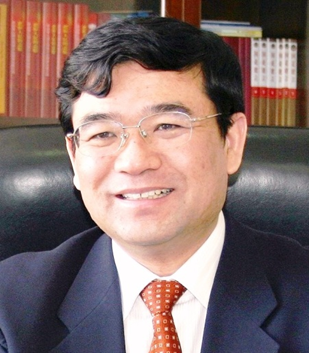
Bio: Lei GUO is a professor at the Academy of Mathematics and Systems Science, Chinese Academy of Sciences (CAS). He is a Fellow of IEEE, Member of CAS, Fellow of the Academy of Sciences for the Developing World (TWAS), Foreign Member of the Royal Swedish Academy of Engineering Sciences, and Fellow of the International Federation of Automatic Control (IFAC). In 2014, he was awarded an honorary doctorate by the Royal Institute of Technology (KTH), Sweden. In 2019, he was awarded the Hendrik W. Bode Lecture Prize by the IEEE Control Systems Society "for fundamental and practical contributions to the field of adaptive control, system identification, adaptive signal processing, stochastic systems, and applied mathematics". His current research interests include adaptive (learning, filtering, control and games) theory of stochastic systems, control of uncertain nonlinear systems, game-based control systems, multi-agent complex systems, and man-machine integration systems, etc.
简介:郭雷,中国科学院系统科学研究所研究员,国际电气与电子工程师学会会士(IEEE Fellow)、中国科学院院士、发展中国家科学院(TWAS)院士、瑞典皇家工程科学院外籍院士、国际自动控制联合会(IFAC)会士。2014年获瑞典皇家理工学院(KTH)荣誉博士学位,2019年因"在自适应控制、系统辨识、自适应信号处理、随机系统及应用数学领域的根本性与实用性贡献"被IEEE控制系统学会授予亨德里克·W·博德讲座奖(Hendrik W. Bode Lecture Prize)。其主要研究方向包括:随机系统的自适应(学习、滤波、控制与博弈)理论、不确定非线性系统控制、基于博弈的控制系统、多智能体复杂系统及人机融合系统等。
Keynote Speaker 2: Prof. Witold Pedrycz
Title: A Paradigm Shift in Machine Learning: From Data to Data- Knowledge Environment
题目:机器学习范式的转变:从数据到数据-知识环境
Abstract: Machine Learning (and AI) are inherently data-driven. Data are a lifeblood of design methodologies and drive current commonly encountered development practices. The usage of data is behind spectacular successes of AI but also leads in some far-reaching failures. From the usage perspective in the ML learning environment, data and knowledge are evidently different. Data are numeric and precise. Knowledge is general and usually expressed at the higher level of abstraction bringing an aspect of information granularity. We carefully revisit the key and promising trends that just have recently emerged under the banner of physics-informed Machine Learning and neuro-symbolic paradigm of AI. Having this in mind, we introduce a general concept of knowledge landmarks (knowledge anchors). The landmarks provide a vehicle that along with data navigate the design of ML models. The role of knowledge is two-fold. First, it fills data gaps existing in the input space. Second, it serves as a regularization term that is essential in avoiding constructing physically infeasible models. In the design process, we elaborate on two fundamental issues, namely (i) we discuss an origin and construction of knowledge landmarks, and (ii) we present a realization of learning mechanisms in the presence of data and knowledge. Main ways of elicitation of knowledge landmarks are identified and discussed, in particular, we elaborate on techniques based on large and diversified amounts of data collected in the past and encapsulated in the form of prototypes (formed through clustering techniques). Along this line of knowledge acquisition, the relevance of the landmarks is quantified through their granularity giving rise to granular knowledge landmarks. Another alternative of building knowledge landmarks is based on their acquisition through LLMs; in this case they are qualitative and described as symbols. The constraints imposed on the data-based ML model are quantified through a collection of magnitude and change of magnitude landmarks. Once knowledge landmarks have been acquired, a unified data-knowledge environment is constructed. In virtue of the low number of knowledge landmarks, the knowledge regularization is formalized in the form of the Gaussian Process regression where the probabilistic information granules are included in the minimization of the augmented loss function. Detailed illustrative studies are showcased using rule-based architectures.
摘要:机器学习(及人工智能)本质上是数据驱动的。数据是设计方法论的生命线,并推动着当前普遍采用的开发实践。数据的使用既是人工智能取得惊人成功的关键,也导致了一些影响深远的失败。从机器学习环境的应用视角来看,数据与知识存在显著差异。数据是数值化的、精确的;而知识是概括性的,通常以更高层次的抽象形式呈现,体现了信息粒度的特性。我们系统梳理了近期在"物理信息机器学习"和"神经符号人工智能"两大范式下涌现的重要趋势。基于此,我们提出了"知识地标"(知识锚点)的核心概念。这些地标与数据协同作用,共同指导机器学习模型的设计。知识的价值体现在双重维度:其一,填补输入空间存在的数据空白;其二,作为正则化项防止构建物理不可行的模型。在设计过程中,我们重点解决两个根本问题:(1)探讨知识地标的来源与构建方法;(2)提出数据与知识双驱动下的学习机制实现方案。研究系统梳理了知识地标的主要获取途径:一方面基于历史海量异构数据,通过聚类技术形成原型进行知识封装,这种基于粒度量化的方法催生了"粒度化知识地标";另一方面利用大语言模型获取定性表达的符号化地标。对于数据驱动的机器学习模型,我们通过"量级地标"和"量级变化地标"集合来实现约束量化。构建知识地标后,即可形成统一的数据-知识协同环境。鉴于知识地标数量有限,其正则化作用通过高斯过程回归实现——在增强损失函数的最小化过程中融入概率信息粒。最后,我们通过基于规则的架构开展了详细的案例验证研究。

Bio: Witold Pedrycz (IEEE Life Fellow) is Professor in the Department of Electrical and Computer Engineering, University of Alberta, Edmonton, Canada. He is also with the Systems Research Institute of the Polish Academy of Sciences, Warsaw, Poland. Dr. Pedrycz is a foreign member of the Polish Academy of Sciences and a Fellow of the Royal Society of Canada. He is a recipient of several awards including Norbert Wiener award from the IEEE Systems, Man, and Cybernetics Society, IEEE Canada Computer Engineering Medal, a Cajastur Prize for Soft Computing from the European Centre for Soft Computing, a Killam Prize, a Fuzzy Pioneer Award from the IEEE Computational Intelligence Society, and 2019 Meritorious Service Award from the IEEE Systems Man and Cybernetics Society. His main research directions involve Computational Intelligence, Granular Computing, and Machine Learning. Professor Pedrycz serves as an Editor-in-Chief of WIREs Data Mining and Knowledge Discovery (Wiley), and Co-editor-in-Chief of J. of Data Information and Management (Springer).
简介:维托尔德·佩德里茨(Witold Pedrycz,IEEE终身会士)现任加拿大埃德蒙顿阿尔伯塔大学电气与计算机工程系教授,同时兼任波兰华沙系统研究所研究员。佩德里茨博士是波兰科学院外籍院士、加拿大皇家学会会士,曾获多项国际学术殊荣,包括:IEEE系统、人与控制论学会颁发的诺伯特·维纳奖、IEEE加拿大计算机工程奖章、欧洲软计算中心卡哈斯特软计算奖、基拉姆奖、IEEE计算智能学会模糊系统先驱奖,以及2019年IEEE系统人与控制论学会杰出服务奖。其核心研究方向涵盖计算智能、粒计算与机器学习三大领域。佩德里茨教授现任《WIREs数据挖掘与知识发现》(Wiley)主编,并担任《数据信息与管理学报》(Springer)联合主编。
Keynote Speaker 3: Prof. Shuxiang Guo
Title: Biomimetic Amphibious Spherical Father-son Underwater Robots
题目:仿生水陆两栖球形父子水下机器人
Abstract: Bio-inspired underwater microrobots with multiple degrees of freedom (DOF) that can walk and swim smoothly in water or aqueous media are of great interest for underwater monitoring operations including pollution detection, video mapping, exploration of unstructured underwater environments, and other tasks. This kind of microrobot must be simple and compact and must have an efficient system of locomotion. Our project aims at the development of a compact and multi-functions for microrobot, inspired by the stick insect, we developed a father-son robot system that can be used in a wide range of underwater applications. In this talk I will describe the State of the art for biomimetic underwater robots, research purposes and research approaches, basic research concepts of biomimetic underwater robots with multi DOFs, design of the spherical underwater robot and multiple robots’ system, father-son underwater robot systems.
摘要:具有多自由度(DOF)的仿生水下微型机器人可以在水中或含水介质中平稳行走和游泳,对于水下监测操作(包括污染检测、视频测绘、非结构化水下环境探索和其他任务)具有很大的兴趣。这种微型机器人必须简单、紧凑,并具有高效的运动系统。我们的项目旨在开发一种紧凑和多功能的微型机器人,受到竹节虫的启发,我们开发了一种父子机器人系统,可用于广泛的水下应用。在这次演讲中,我将介绍仿生水下机器人的研究现状、研究目的和研究方法、多自由度仿生水下机器人的基本研究概念、球形水下机器人和多机器人系统的设计、父子式水下机器人系统。

Bio: Shuxiang Guo (Fellow, IEEE) is currently the Chair Professor with Southern University of Science and Technology, Shenzhen, China. He is also the Chair Professor with Beijing Institute of Technology, Beijing, China. Prof. Guo has a fellowship of the Engineering Academy of Japan.. His Ph.D. was obtained at the Nagoya University, Japan (1995). His current research interests include micro robotics and mechatronics, micro robotics system for minimal invasive surgery, micro catheter system, micro pump, and smart material (SMA, ICPF) based on actuators. He has published about 500 refereed journal and conference papers. He also received the Chang Jiang Professorship Award from Ministry of Education of China in 2005, and was offered Thousand-Elite-Project in China. He is the founding chair for IEEE International Conference on Mechatronics and Automation. And he is the editor in chief for International Journal of Mechatronics and Automation.
简介:郭书祥,南方科技大学讲席教授,北京理工大学特聘教授,日本工程院外籍院士,IEEE Fellow, 国家特聘专家,教育部长江学者教授。工业和信息化部融合医工系统与健康工程重点实验室主任。曾任职日本国立香川大学机电工程系近30年,为该大学终身教授。长期从事微机器人技术、血管检查微系统、医疗生物用遥控微操作系统等方面的研究工作。在世界上率先开发出直径 1mm的两种脑血管检查微系统,在生物医学工程领域,是爱思唯尔2020年- 2024年连续5年的中国高被引学者。拥有40余项机器人和微系统方面的发明专利,产学研同步推进,入选2022年“科创中国”创业就业先锋榜,获2023年中国产学研合作创新奖(个人)。
Keynote Speaker 4: Prof. C. L. Philip Chen
Title: Collaborative Innovation Technologies and Applications for Large and Small Models
题目:大小模型协同创新技术与应用
Abstract: With the advancement of large model technologies, numerous research institutions worldwide have engaged in competitions regarding model parameter scale and computing power, sparking critical reflections in academia about the current development path of artificial intelligence. On one hand, the research and application of large models still heavily rely on high-performance computing ecosystems dominated by foreign technologies, making it difficult to ensure autonomous security in large model development. On the other hand, most current industrial intelligent scenarios demonstrate a disproportionate relationship between the utilization of large model capabilities and the computational costs invested, highlighting the need for more efficient and lightweight models. Addressing these developmental challenges, this lecture will analyze future industrial trends in AI by examining current research progress in both large and small models, with a focus on the potential of hybrid development approaches combining different model scales.
摘要:随着大模型技术的发展,国内外大量的研究机构都开始进行大模型参数量竞赛与算力竞赛,这引发了学术界对当前人工智能发展道路的批判性思考。一方面,大模型研究与应用仍高度依赖以国外为主的高性能计算生态,对于大模型技术的自主安全难以把控。另一方面,当前大部分的工业智能化场景对于大模型性能的利用与付出的计算成本不成正比,反而需要更高效、更轻量的模型。针对这一发展问题,本次讲座将结合当前的大模型与小模型的研究现状,分析未来人工智能的大小模型混合发展对于未来产业发展的趋势。
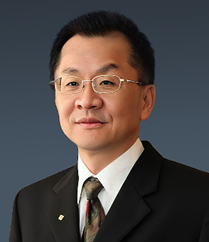
Bio: C. L. Philip Chen is the Chair Professor and Dean of the School of Computer Science and Engineering, South China University of Technology. Prior to this position he worked in the US in two different universities as a tenured professor, department chair and associate dean, and in University of Macao as the dean. He is a Life Fellow of IEEE, Fellow of AAAS, IAPR, CAA, CAAI, and HKIE; a member of Academia Europaea (AE), a member of European Academy of Sciences and Arts (EASA), and a Full Foreign Member of Russia Academy of Engineering (FFM-RAE). He received the IEEE Norbert Wiener Award in 2018, for his contribution in systems and cybernetics, and machine learnings, the IEEE Joseph G. Wohl Outstanding Career award, Wu WenJun Outstanding Contribution award from Chinese AI Association, and 2016 Outstanding Electrical and Computer Engineers Award from his alma mater, Purdue University.
He is a highly cited researcher by Clarivate Analytics from 2018-2023 and is listed in Stanford University/Elsevier World’s Top 2% Scientists in “Lifetime Scientific Impact” and in “Annual Scientific Impact (951 world-rank in 2024)” Rankings since 2019. His current research interests include cybernetics, systems, and computational intelligence. For his contribution in these research areas, he received two times best transactions paper award from IEEE Transactions on Neural Networks and Learning Systems for his papers in 2014 and 2018 and received three-time Macau natural science award. In professional service, he was the Editor-in-Chief of the IEEE Transactions on Cybernetics, the Editor-in-Chief of the IEEE Transactions on Systems, Man, and Cybernetics: Systems, the President of IEEE Systems, Man, and Cybernetics Society. Currently, he is the director of two Guangdong Key Labs, the director of a research lab funded by the Ministry of Education, a Vice President of Chinese Association of Automation, and Co-President of Guangdong AI Industrial Association.
简介:陈俊龙教授 ( C. L. Philip Chen),华南理工大学特聘讲席教授、博士生导师、计算机科学与工程学院院长,教育部健康智能与数字平行人工程中心主任,广东省人工智能产业协会联席会长。他是IEEE Life Fellow、AAAS Fellow、IAPR Fellow、欧洲科学院院士(Academia Europaea)、欧洲科学与艺术院院士、俄罗斯工程院外籍院士、中国自动化学会(CAA) 、中国人工智能学会(CAAI)及香港工程师学会 (HKIE) Fellow。目前陈教授任中国自动化学会副理事长,曾任两个IEEE 顶级期刊主编,获IEEE 诺伯特·维纳奖、IEEE约瑟夫·沃尔终身成就奖、吴文俊人工智能领域杰出贡献奖、美国普渡大学杰出电机计算机杰出校友奖等荣誉。连续6年被列为全球高被引科学家,斯坦福大学发布的全球前2%顶尖科学家榜单。在高排名学者(Highly Ranked Scholars™ ) 计算机类(Computer Science)近五年的影响力全国排名中名列第一,位列全球第8名。
陈教授主要从事计算智能系统,数据挖掘和知识发现,信息和视频索引、检索、系统、控制论和机器人的研究。他围绕智能系统与控制、计算智能、数据科学等科研方向开展研究工作超过40年,在该领域取得一系列学术创新性成果。他曾获中国自动化学会自然科学奖及广东省科技进步奖一等奖。
Keynote Speaker 5: Prof. Zengguang Hou
Title: Opportunities and Challenges for Medical Robotics in the Age of AI
题目:智能时代医疗机器人面临的机遇和挑战
Abstract: Recently, faced with the growing challenge of population aging as well as the complex issues in disease diagnosis and treatment, the rapid advancement of artificial intelligence (AI) and robotics has introduced innovative technological solutions for medical applications. The integration of "AI + healthcare" and "robotics + healthcare" is emerging as a new growth driver in the medical technology sector. Medical robotics and AI technologies are increasingly becoming part of our healthcare ecosystem, demonstrating vast potential for future development.
While AI has accelerated progress in robotics, robotics, in turn, extends the practical capabilities of AI. However, the application of medical robotics and AI still faces multiple challenges. For instance, achieving efficient, reliable, and safe AI-enabled interaction and control remains a critical hurdle in further advancement.
This presentation will explore cutting-edge topics, including multimodal biosignal acquisition and processing, human-robot interaction in medical settings, and clinical applications. Additionally, it will highlight recent technological breakthroughs and provide insights into future directions in the field.
摘要:我们面临日益严重的人口老龄化问题,并且还面临复杂疾病的诊断与治疗等挑战难题,近年来,人工智能和机器人技术快速发展,为疾病的诊断与治疗提供了新的技术手段,“AI+医疗”、“机器人+医疗”正在成为医疗技术行业新的增长点,医疗机器人和人工智能技术正在加快进入我们的健康生活,发展空间巨大。人工智能促进了机器人技术的发展,机器人也延申了人工智能的硬能力。但医疗机器人和人工智能技术的应用也面临诸多挑战,例如,高效、可靠、安全的人工智能交互与控制是阻碍其发展的一个重要挑战。本报告将结合多模态生物信号的获取、处理以及机器人的人机交互等热点问题和临床应用,阐述相关领域的技术进展,及对未来发展的思考与展望。

Bio: Zengguang Hou is a professor at the Institute of Automation, Chinese Academy of Sciences (CAS) and IEEE/CAA Fellow. He is a recipient of the National Science Fund for Distinguished Young Scholars and was selected for the National Ten Thousand Talents Program. He serves as Vice President of the Chinese Association of Automation (CAA), Director of the CCF Technical Committee on Intelligent Robotics, and Deputy Director of the Intelligent Rehabilitation Committee of the Chinese Association of Rehabilitation Medicine. Additionally, he holds the position of Vice President of the Asia-Pacific Neural Network Society (APNNS) and serves on the editorial boards of several prestigious journals, including IEEE Transactions on Cybernetics, Neural Networks, and IEEE Transactions on Neural Networks and Learning Systems. Prof. Hou has been honored with numerous awards, including the Second Prize of the National Natural Science Award, the First Prize of the Beijing Natural Science Award, and the Yang Jiachi Science and Technology Award. Internationally, he received the Dennis Gabor Award from the International Neural Network Society (INNS), recognizing his outstanding contributions to the field.
简介:侯增广,中国科学院自动化研究所研究员,博士生导师,国家杰出青年基金获得者、万人计划入选者、IEEE/CAA Fellow。担任中国自动化学会副理事长、CCF智能机器人专业委员会主任、中国康复医学会智能康复专业委员会副主任等,是亚太神经网络学会(APNNS)副理事长,还担任《IEEE Transactions on Cybernetics》、《Neural Networks》、《IEEE Transactions on Neural Networks and Learning Systems》等期刊编委。获国家自然科学二等奖、北京市自然科学一等奖、杨家墀科技奖等,还获得国际神经网络学会(INNS)丹尼斯·甘伯奖等。
Keynote Speech 6: Strategic Layout and Practice of AI Education in China⇒
By Prof. Han Liqun(Beijing Technology and Business University)
Report Summary
Bio:Professor and Ph.D. Supervisor at Beijing Technology and Business University; former Dean of the School of Information Engineering; Visiting Professor at University of Science and Technology Beijing, Beijing University of Posts and Telecommunications, and Army Armored Force Academy.
She is also a Fellow of the Academy of Engineering and Technology for the Developing World (AETDEW), a Fellow of the International Academy of Information and Systems (IAIS), a Foreign Fellow of the ASEAN Academy of Engineering and Technology (AAET), and one of the first batch of Fellows of the Chinese Association for Artificial Intelligence (CAAI).
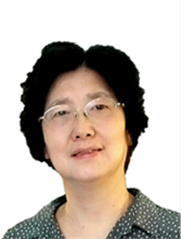
Keynote Speaker 7: Prof. Ching-Chih Tsai
Title: Adaptive Intelligent Robotic Control Using Fuzzy Deep, Broad and Reinforcement Learning Techniques
报告题目:基于模糊深度/宽度/强化学习技术的自适应智能机器人控制
Abstract: Deep learning (DL) and reinforcement learning (RL) have been widely investigated and applied for many engineering applications. Broad learning systems (BLSs) have been shown to work as an effective and efficient incremental learning without the need for deep architecture, thus giving a new paradigm and learning system for AI systems. By incorporating with the merits of DL, RL, variant BLSs and fuzzy logics, this talk will present you fuzzy DL-based, BLS-based and RL-based control frameworks for autonomous mobile robots (AMRs) and multirobots. In the talk, some advances on fuzzy DL NN, fuzzy BLSs and fuzzy reinforcement learning systems are first mentioned, their applications to UAVs, wheeled AMRs and multirobots are discussed in some detail. Experimental results and videos are provided to illustrate the merits of the proposed fuzzy DL-based, BLS-based and RL-based control frameworks. Last but not least, some perspective topics on fuzzy deep, broad and reinforcement learning methods are recommended for future research.
摘要:深度学习(DL)与强化学习(RL)已在众多工程应用领域得到广泛研究和应用。而宽度学习系统(BLS)作为一种无需深度架构的高效增量学习方法,为人工智能系统提供了全新范式。本次报告将融合深度学习、强化学习、多样化宽度学习系统及模糊逻辑的优势,重点阐述基于模糊深度学习、宽度学习及强化学习的自主移动机器人(AMR)与多机器人系统控制框架。内容将涵盖模糊深度神经网络、模糊宽度学习系统及模糊强化学习系统的最新进展,并详细探讨其在无人机、轮式自主移动机器人及多机器人系统的应用。通过实验数据与视频演示,将直观展示所提出的三类模糊控制框架的优越性。最后针对模糊深度/宽度/强化学习方法的未来研究方向提出若干前瞻性课题建议。

Bio: Ching-Chih Tsai received the Diploma in the Department of Electrical Engineering from the National Taipei University of Technology, Taipei City, Taiwan Province, China, in 1981, the M.S. degree in the Institute of Control Engineering from National Chiao Tung University, Taiwan Province, China, in 1986, and the Ph. D degree in the Department of Electrical Engineering from Northwestern University, Evanston, IL, USA, in 1991. He is currently a Life Distinguished Professor in the Department of Electrical Engineering at National Chung Hsing University (NCHU), Taiwan Province, China. He served as Dean of College of Electrical Engineering and Computer Science, NCHU, since August, 2024. He has published and co-authored more than 700 technical articles and received many awards and recognitions from international conferences supported by IEEE. His current research interests include intelligent control, smart mobile robotics and automation intelligence with their applications to service and industrial robots, semiconductor manufacturing and AI-based control systems. He is a Fellow of IEEE, IET, CACS, RST, and TFSA.
简介:蔡清池教授于1981年在中国台湾省台北市的台北科技大学电机工程系获得学士学位,1986年在中国台湾省新竹市的交通大学控制工程研究所获得硕士学位,1991年在美国伊利诺伊州埃文斯顿的西北大学电机工程系获得博士学位。他目前是中国台湾省台中市的中兴大学电机工程系的终身杰出教授,担任中兴大学电机工程与计算机科学学院院长。他已发表和合著了700多篇技术文章,主要研究领域包括智能控制、智能移动机器人和自动化智能及其在服务机器人和工业机器人、半导体制造和基于人工智能的控制系统中的应用。他是IEEE、IET、CACS、RST和TFSA的会士。
Keynote Speaker 8: Prof. Xinzhu Sang
Title: AI-Driven High-Definition Glasses-free 3D Light Field Display with Large-Viewing-Angle
报告题目:AI驱动的大视角高清晰裸眼3D光场显示
Abstract: Glasses-free true 3D light field display delivers authentic 3D video experiences that closely mimic real-world scenes, which aligns with the natural way humans perceive the real world. With both physiological and psychological depth cues, it provides comprehensive 3D perceptual information, enabling more intuitive and holistic cognition. High-definition glasses-free 3D light field display with large-viewing-angle, requires breaking through limitations in the degree of freedom and precision of light control devices while balancing the spatial bandwidth product of display systems. This report presents our research on AI-driven high-definition glasses-free 3D light field display with large-viewing-angle based on AI-assisted design and calibration. A 65-inch 3D light field display is realized with a viewing angle exceeding 110 degrees, featuring accurate spatial geometric occlusion relationships. LED-based 54-inch and 162-inch 3D light field displays are demonstrated. AI introduces novel approaches to 3D light field video processing, significantly lowering the threshold for 3D light field content creation. Free-space 3D light field distributions is constructed, which enables aerial imaging-based dynamic glasses-free 3D light field displays.
摘要:裸眼真3D光场显示为观看者提供最接近真实场景的真3D视频,符合人们观看世界的真实感受,满足生理和心理的深度线索暗示,获取更完备的生理和心理的3D感知信息,实现更直观、全面的认知。实现大视角高清晰裸眼3D光场显示,需要突破控光器件控光自由度和精准度的限制,兼顾显示器件空间带宽积。报告介绍了研究团队在AI驱动的大视角高清晰裸眼3D光场显示方面的探索。通过AI辅助设计与校正,实现了65英寸的超过110度视角的3D光场显示,具有正确的空间几何位置遮挡关系;实现了基于LED的54英寸和162英寸的大视角的裸眼3D光场显示。AI为3D光场视频的处理提供了新思路,降低了3D光场内容产生的门槛。构建了自由空间3D光场分布,实现了多种形态空气成像的动态裸眼3D光场显示。

Bio: Xinzhu Sang is a Distinguished Professor at Beijing University of Posts and Telecommunications, and a recipient of the National Talent Program. He serves as a member of the Electronic Information Science and Technology Committee of the Ministry of Industry and Information Technology (MIIT), and the Secretary-General and Deputy Director of the Holography and Optical Information Processing Committee of the Chinese Optical Society. His research focuses on glasses-free 3D light-field display and novel photonic devices. He has presided over more than 30 major research projects, including Key Projects of the National Natural Science Foundation of China and the National Key Research and Development Program. He has published over 350 academic papers and won more than 100 invention patents. His research achievements have been featured in prominent exhibitions such as "The Great Reform – Celebrating the 40th Anniversary of Reform and Opening-Up Large-Scale Exhibition," "High-Tech Equipment Exhibition," and so on. He has been honored with "2017 Outstanding Teacher of Beijing" and "2016 Ethical Model Pioneer of Beijing." His won the 2023 Second Prize of the National Technology Invention Award, the 2022 First Prize of the Ministry of Education Technology Invention Award, the 2021 First Prize of the Beijing Science and Technology Award, and so on.
简介:桑新柱,北京邮电大学特聘教授,博士生导师,国家级人才计划入选者。兼任工信部电子信息科技委委员、中国光学学会理事、中国光学学会全息与光信息处理专委会秘书长和副主任等。主要从事裸眼3D光显示和新型光电子器件方面的研究,主持国家自然科学基金重点项目、国家重点研发计划等课题30余项,发表论文350余篇,获授权发明专利100余项,部分成果进行了应用转化。成果入选 “伟大的变革-庆祝改革开放40周年大型展览”、“中国科幻大会”等。被评为2017年北京市优秀教师和2016年北京市师德先锋等荣誉称号。荣获2023年度国家技术发明二等奖、2022年度教育部技术发明一等奖、2021年度北京市科学技术一等奖、2019年度教育部技术发明二等奖等。
Keynote Speaker 9: Prof. Yasufumi Takama
Title: Enhancing Collaborative Filtering for Advanced Recommender Systems
报告题目:面向高级推荐系统的增强协同滤波方法
Abstract: Recommender systems play a vital role in today’s data-rich yet information-poor landscape by efficiently guiding users to relevant content. Among various recommendation technologies, collaborative filtering (CF) stands out as a foundational approach. While CF has been successfully implemented across numerous recommender systems, certain limitations still hinder its full potential. This talk explores two key strategies for strengthening CF: integrating users’ personal values into the CF model and generating synthetic rating matrices for training the model.
摘要:推荐系统在当今数据泛滥却信息匮乏的环境中发挥着至关重要的作用,它能高效引导用户获取相关内容。在众多推荐技术中,协同滤波(CF)作为一种基础性方法脱颖而出。尽管协同滤波已在诸多推荐系统中成功应用,但其仍存在若干局限性制约着性能的充分发挥。本次报告将探讨强化协同滤波的两大关键策略:一是将用户个人价值观融入协同滤波模型,二是通过生成合成评分矩阵来训练模型。
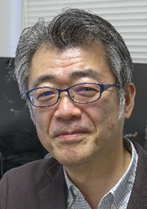
Bio: Prof. Yasufumi Takama received a Dr. Eng. Degree from the University of Tokyo, Tokyo, Japan in 1999. He was a JSPS (Japan Society for the Promotion of Science) Research Fellow from 1997 to 1999. From 1999 to 2002 he was a Research Associate at Interdisciplinary Graduate School of Science and Engineering, Tokyo Institute of Technology in Japan. From 2002 to 2005, he was an Associate Professor at Department of Electronic Systems and Engineering, Tokyo Metropolitan Institute of Technology, Tokyo, Japan. From 2005 to 2013, he was an Associate Professor at Faculty of Systems Design, Tokyo Metropolitan University, Tokyo, Japan. Since 2014, he has been a Professor at Faculty of Systems Design, Tokyo Metropolitan University, Tokyo, Japan. He also participated in PREST (Pre-cursory Research for Embryonic Science and Technology), JST (Japan Science and Technology Corporation) from 2000 to 2003. His current research interest includes information recommendation, Web intelligence, information visualization, and human in the loop. Dr. Takama is a member of IEEE, ACM, IEICE (Institute of Electronics, Information and Communication Engineers), JSAI (Japanese Society of Artificial Intelligence), and IPSJ (Information Processing Society of Japan).
简介:Yasufumi Takama教授于1999年获日本东京大学工学博士学位。1997至1999年担任日本学术振兴会(JSPS)特别研究员。1999至2002年任日本东京工业大学综合理工学研究科助理研究员;2002至2005年任日本东京都立科学技术大学电子系统工程系副教授;2005至2013年任日本东京都立大学系统设计学部副教授;2014年至今任该校系统设计学部教授。2000至2003年间,他还参与了日本科学技术振兴机构(JST)先驱性研究计划(PREST)。其当前研究方向包括信息推荐系统、网络智能、信息可视化及人机协同技术。高见博士是电气电子工程师学会(IEEE)、国际计算机学会(ACM)、日本电子情报通信学会(IEICE)、日本人工智能学会(JSAI)及日本信息处理学会(IPSJ)的会员。
Keynote Speaker 10: Prof. Kazuhiko Kawamoto
Title: Interpretability and Transferability in Deep Learning
报告题目:深度学习中的可解释性与可迁移性
Abstract: Deep learning has significantly advanced a wide range of vision tasks. However, key challenges remain in understanding model behavior and ensuring adaptability to new tasks and environments. In this talk, I will introduce our recent work focusing on two essential aspects: interpretability and transferability. For interpretability, I will present a game-theoretic approach that reveals how different input components—such as image patches—interact and influence model predictions. This provides a structured means of understanding the decision-making processes of deep networks. For transferability, I will share insights from our work on incremental learning, cross-model transfer, and federated learning. These studies demonstrate how models can acquire new visual concepts, collaborate across distributed systems, and adapt to novel scenarios without retraining from scratch. Together, these perspectives suggest practical strategies for developing deep learning systems that are not only accurate, but also more transparent and adaptable to real-world vision tasks.
摘要:推荐系统在当今数据泛滥却信息匮乏的环境中发挥着至关重要的作用,它能高效引导用户获取相关内容。在众多推荐技术中,协同滤波(CF)作为一种基础性方法脱颖而出。尽管协同滤波已在诸多推荐系统中成功应用,但其仍存在若干局限性制约着性能的充分发挥。本次报告将探讨强化协同滤波的两大关键策略:一是将用户个人价值观融入协同滤波模型,二是通过生成合成评分矩阵来训练模型。

Bio: Prof. Kazuhiko Kawamoto received his B.E., M.E., and Ph.D. degrees from Chiba University, Japan, in 1997, 1999, and 2002, respectively. From 2002 to 2005, he was an Assistant Professor at Tokyo Institute of Technology, and from 2005 to 2009, an Associate Professor at Kyushu Institute of Technology. In 2009, he joined Chiba University as an Associate Professor at the Institute of Media and Information Technology, and he is currently a Professor at the Graduate School of Informatics. He also serves as Chair of the Department of Mathematics and Information Science within the Graduate School of Science and Engineering at Chiba University. His research interests include computer vision, deep learning, and reinforcement learning. He has published papers in top-tier conferences such as AAAI and CVPR, and his research has been recognized with several awards at academic conferences. His recent work focuses on the interpretability, robustness, and transferability of deep learning models. He is a member of IEEE, SOFT (Japan Society for Fuzzy Theory and Intelligent Informatics), IEICE (Institute of Electronics, Information and Communication Engineers), JSAI (Japanese Society for Artificial Intelligence), and IPSJ (Information Processing Society of Japan).
简介:Kazuhiko Kawamoto教授于1997年、1999年与2002年分别获得日本千叶大学工学学士、硕士及博士学位。2002至2005年任东京工业大学助理教授,2005至2009年任九州工业大学副教授。2009年加入千叶大学媒体与信息技术研究所任副教授,现任该校信息学研究科教授,并兼任千叶大学理工学研究科数学与信息科学系主任。其主要研究方向包括计算机视觉、深度学习与强化学习,相关成果已在AAAI、CVPR等顶级会议发表,并多次荣获学术会议奖项。近期研究聚焦深度学习模型的可解释性、鲁棒性及可迁移性。现为电气电子工程师学会(IEEE)、日本模糊理论与智能信息学会(SOFT)、日本电子情报通信学会(IEICE)、日本人工智能学会(JSAI)及日本信息处理学会(IPSJ)会员。
Keynote Speaker 11: Prof. Shing-Chi Cheung(The Hong Kong University of Science and Technology)
Title: Can LLMs Revolutionize Formal Verification: Gaps and Opportunities?
报告题目:LLMs能否彻底改变形式验证:差距与机遇?
Abstract: Large Language Models (LLMs) excel in numerous domains, yet their potential in formal verification—ensuring system correctness through rigorous reasoning—remains underexplored. This talk investigates whether LLMs can transform formal verification by automating the translation of natural language program descriptions into formal specifications and generating verifiable proofs. We highlight a critical research gap: existing benchmarks emphasize end-to-end solutions, overlooking intermediate tasks essential to verification. To address this, we introduce FM-Bench, a novel benchmark that breaks down formal verification into distinct subtasks, including specification generation and proof synthesis. Our evaluation of recent LLMs using FM-Bench reveals strengths in processing natural language but weaknesses in producing precise formal artifacts, especially for complex systems. We also examine the effects of fine-tuning LLMs with formal verification data, demonstrating improved performance in related domains, such as mathematical reasoning and code generation. Our examination suggests broader applicability. The presentation highlights the opportunities that LLMs offer in making formal methods more accessible, while also identifying challenges in logical reasoning and the accuracy of specification. By bridging natural language and formal verification, LLMs could enhance the reliability of software systems.
摘要:大型语言模型(llm)在许多领域都表现出色,但是它们在正式验证(通过严格的推理确保系统正确性)方面的潜力仍未得到充分开发。本讲座探讨llm是否可以通过将自然语言程序描述自动翻译为形式规范并生成可验证的证明来转换形式验证。我们强调了一个关键的研究差距:现有的基准强调端到端解决方案,忽略了对验证至关重要的中间任务。为了解决这个问题,我们引入了FM-Bench,这是一种新的基准测试,它将形式验证分解为不同的子任务,包括规范生成和证明合成。我们对最近使用FM-Bench的法学硕士的评估揭示了在处理自然语言方面的优势,但在产生精确的形式化工件方面的弱点,特别是对于复杂的系统。我们还用正式的验证数据检验了微调llm的效果,展示了相关领域(如数学推理和代码生成)的性能改进。我们的研究表明了更广泛的适用性。该演讲强调了llm在使形式化方法更容易获得方面提供的机会,同时也确定了逻辑推理和规范准确性方面的挑战。通过连接自然语言和形式化验证,llm可以提高软件系统的可靠性。
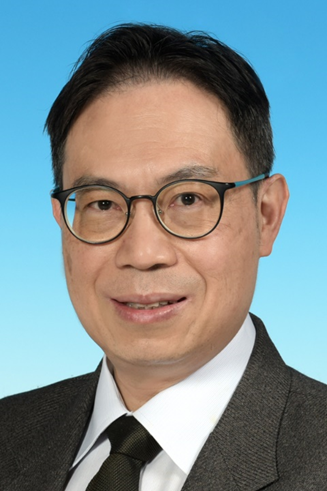
Bio: Professor Shing-chi Cheung from the Hong Kong University of Science and Technology (HKUST) specializes in leveraging advanced testing methodologies, artificial intelligence technologies, and empirical research techniques to identify, diagnose, and repair faults in reliable and intelligent software systems. He is a Chair Professor of Computer Science and Engineering and was conferred the title of IEEE Fellow. Professor Cheung and his research team have been working on ensuring the quality of software systems using methodologies adopted by both academia and industry. In 1998, Professor Cheung introduced Metamorphic Testing, which has since emerged as a leading testing methodology in artificial intelligence system testing. Recently, his team has been exploring the application of generative AI for software development and maintenance.
简介:香港科技大学(科大)的Shing-chi Cheung教授擅长运用先进的测试方法、人工智能技术和实证研究技术,在可靠的智能软件系统中识别、诊断和修复故障。他是计算机科学与工程的讲座教授,并被授予IEEE院士称号。张教授和他的研究小组一直致力使用学术界和工业界所采用的方法,确保软件系统的质素。1998年,张教授介绍了变形测试,从此成为人工智能系统测试的领先测试方法。最近,他的团队一直在探索生成式人工智能在软件开发和维护中的应用。
Keynote Speaker 12: Prof. Jianqing Li (Macau University of Science and Technology)
Title: Network Intrusion Detection for IoT Environments with Limited Resources
报告题目:资源有限的物联网环境下的网络入侵检测
Abstract: With the rapid proliferation of Internet of Things (IoT) devices, cybersecurity has become an increasingly critical concern. However, traditional network intrusion detection methods typically rely on large amounts of high-quality labeled data, a condition that is often difficult to meet in real-world IoT scenarios. To address this challenge, this presentation focuses on effective network intrusion detection in IoT environments under complex conditions, including limited labeled data, unlabeled data, and varying traffic patterns. Our team has proposed several innovative detection mechanisms aimed at deeply exploring and fully utilizing the latent information within network traffic, thereby significantly improving detection performance in scenarios with scarce or even no labels. Experimental results demonstrate that the proposed approaches achieve high detection accuracy and low false alarm rates across diverse network environments, exhibiting strong generalization capability and practical applicability, particularly for IoT environments with limited resources.
摘要:随着物联网(IoT)设备的快速扩散,网络安全已成为越来越重要的问题。然而,传统的网络入侵检测方法通常依赖于大量高质量的标记数据,这在现实世界的物联网场景中往往难以满足。为了应对这一挑战,本演讲重点关注复杂条件下物联网环境中的有效网络入侵检测,包括有限的标记数据、未标记数据和不同的流量模式。我们的团队提出了几种创新的检测机制,旨在深入挖掘和充分利用网络流量中的潜在信息,从而显著提高在缺乏甚至没有标签的场景下的检测性能。实验结果表明,该方法在多种网络环境下均实现了较高的检测准确率和较低的虚警率,具有较强的泛化能力和实用性,尤其适用于资源有限的物联网环境。
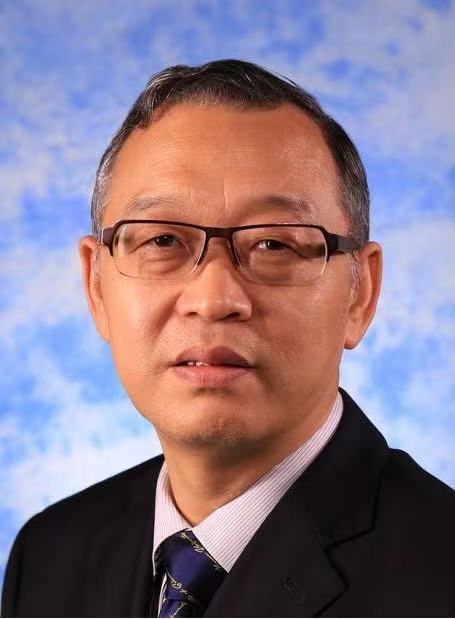
Bio: Jianqing Li is currently a Professor and an Assistant Director of School of Computer Science and Engineering. He received the Ph. D. degree from the Beijing University of Posts and Telecommunications, Beijing, China, in 1999. From 2000 to 2002, he was a Visiting Professor with the Information and Communications University, Daejeon, South Korea. From 2002 to 2004, he was a Research Fellow with Nanyang Technological University, Singapore. He joined the Macau University of Science and Technology, Macau, China, in 2004. He won Third Prize in Technology Invention of 2016 and 2018 Macao Science and Technology Awards, respectively. He won Third Prize in Natural Science of 2022 Macao Science and Technology Awards. His main research interests include wireless networks, fiber sensors, and the Internet of Things.
简介:Jianqing Li,现任澳门科技大学计算机科学与工程学院教授、院长助理。他于1999年获得北京邮电大学博士学位。2000年至2002年,他是韩国大田信息通信大学的客座教授。2002年至2004年,他在新加坡南洋理工大学担任研究员。他于2004年加入中国澳门的澳门科技大学。他分别获得2016年和2018年澳门科学技术奖技术发明三等奖。获2022年澳门科学技术奖自然科学三等奖。主要研究方向为无线网络、光纤传感器和物联网。
Keynote Speech 13: Prof. Ma Zhongjing (Beijing Institute of Technology)
Title: Research on the Design and Control Decision-Making of a Biomimetic Robotic Fish System
题目:仿生机器鱼系统的设计与控制决策研究
摘要:仿生机器鱼,作为一种模仿自然界生物鱼类行为和形态的自主水下机器人,具有突出的水下隐蔽性、机动性优势。本次报告将涉及仿生机器鱼的设
计、动力学模型、控制策略、感知技术等,旨在展现机器鱼技术的最新研究进展与广泛应用潜力。从仿生机器鱼的机械结构设计展开,介绍基于光学与惯性等
多传感器的融合技术,以及基于仿生学分析、数据驱动方法、流体力学理论的运动学与动力学模型建立方法;在控制策略部分,将介绍针对机器鱼特性研发的
控制技术,并分析完成自主控制和复杂任务时的综合效能等。
马中静,北京理工大学自动化学院,教授、博士生导师。目前主要从事智能控制、优化、博弈理论及其在智能无人系统、综合能源系统等领域的应用;
近年来承担了国家自然科学基金、科技部国际合作专项、北京市自然科学基金、国家电网等多项科研课题;带领团队开发了基于多感知信息融合的智能无人机、
UUV和仿生机器鱼平台系统,实现了复杂场景下的路径规划、目标识别以及异构群体的编队协同运行等,并应用于电力等行业的线路自主巡检、故障诊断等,
在IEEE汇刊等发表学术论文80余篇。
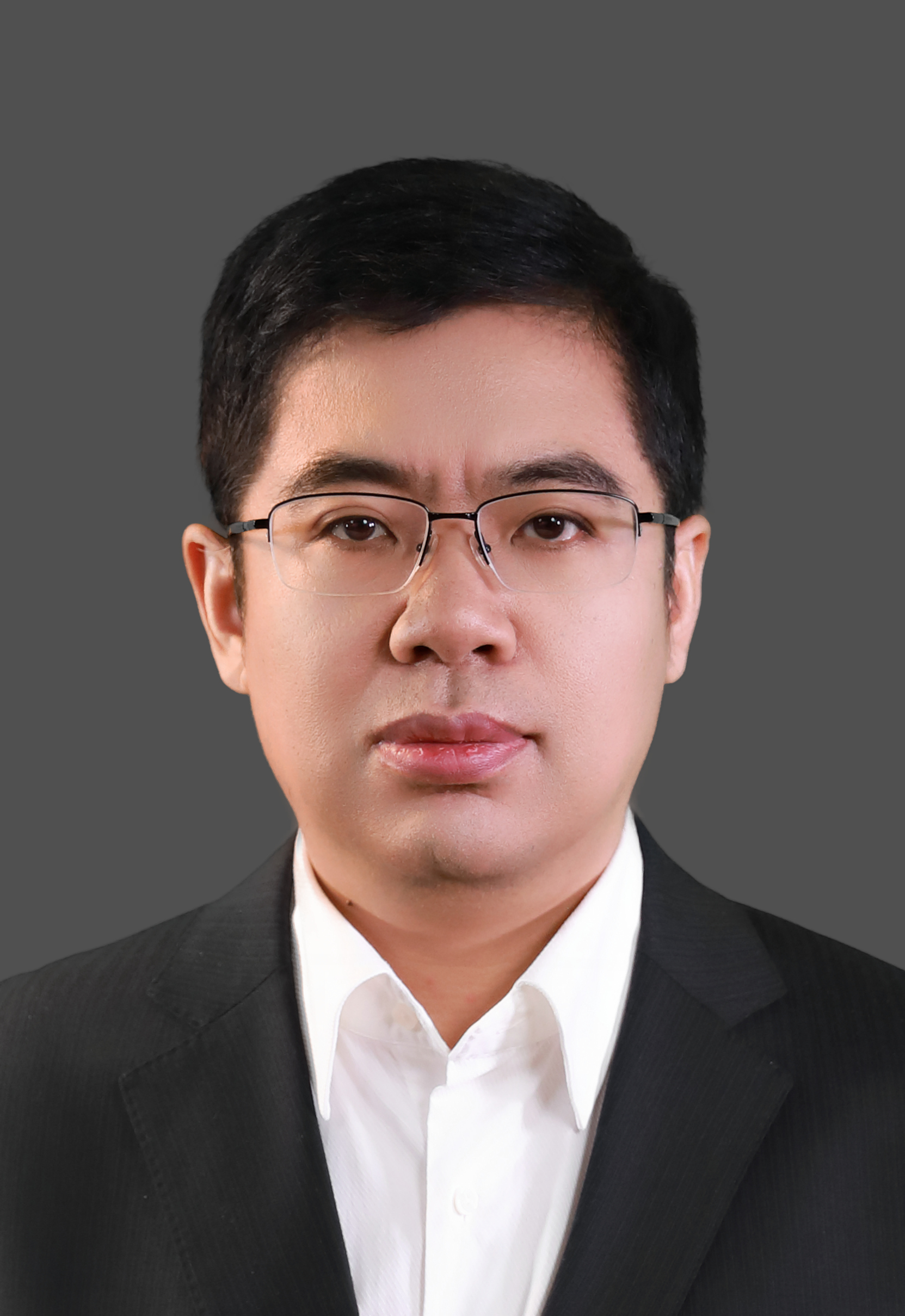
Keynote Speech 14: Prof. Jun Liu (University of Waterloo)
Title: Physics-Informed Neural Network Lyapunov Functions
Abstract: One of the longstanding challenges in systems and control is the effective construction of Lyapunov functions for formal system analysis and control. In this talk, we discuss a machine learning framework for learning Lyapunov certificates to address stability and safety problems in systems and control using physics-informed neural networks. Specifically, we obtain neural Lyapunov functions by solving characteristic partial differential equations (PDEs) for these problems with neural networks and derive sufficient conditions for the efficient verification of the learned certificates using satisfiability modulo theories (SMT) solvers. We address approximation error bounds, convergence guarantees of neural approximations, and the formal correctness of neural Lyapunov certificates. The framework is illustrated with examples from nonlinear systems and control, ranging from low- to high-dimensional systems, and shown to outperform traditional sum-of-squares (SOS) approaches in semidefinite programming.
Bio: Jun Liu is a Professor of Applied Mathematics and a Canada Research Chair at the University of Waterloo, where he directs the Hybrid Systems Lab. He received his B.S. in Applied Mathematics from Shanghai Jiao-Tong University, M.S. in Mathematics from Peking University, and Ph.D. in Applied Mathematics from the University of Waterloo. After a Postdoctoral Fellowship at Caltech, he was a Lecturer at the University of Sheffield before joining Waterloo in 2015. His research focuses on hybrid systems, control theory, optimization, and machine learning, with applications in robotics and cyber-physical systems. He has received a Marie-Curie Career Integration Grant, a Canada Research Chair (2017–2027), an Ontario Early Researcher Award, and the CAIMS/PIMS Early Career Award. His best paper awards include the Zhang Si-Ying Outstanding Youth Paper Award, the IFAC Nonlinear Analysis: Hybrid Systems (NAHS) Paper Prize, and the Oded Maler Prize (FORMATS Best Paper). Dr. Liu is a senior member of IEEE, a member of SIAM, and a lifetime member of CAIMS, and has served on editorial boards and program committees of several journals and conferences in control and systems theory.
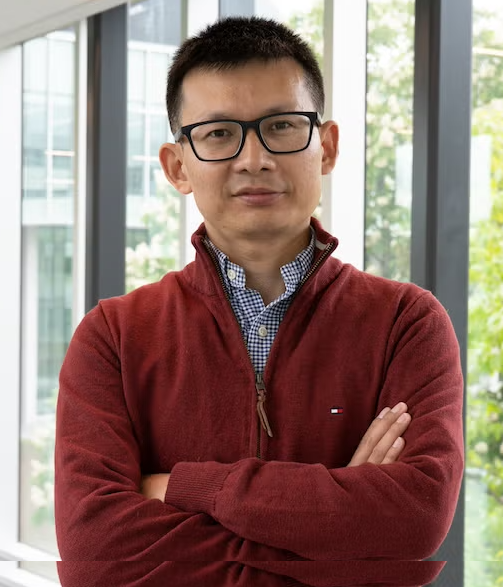
Keynote Speech 15: Prof. Yaodong Pan (Tokyo University of Technology)
Title:Design of cabin temperature control systems
摘要:客机机舱温度控制系统包含热空气压力控制子系统、混合器温度控制子系统,空气管道温度控制子系统、机舱各区域及驾驶舱、乘务员休息舱、货舱等的温度控制子系统。本报告针对这样的含有多个子系统和多种非线形因素的控制系统,介绍如何设计一个稳定可靠并满足客户需求的控制器。
简介:
日本东京工科大学研究员。曾任长沙国防科学技术大学讲师、日本东京电机大学副教授、加拿大霍尼韦尔公司高级资深工程师。主要研究领域为控制理论及其应用、变结构控制、机器人。发表会议及期刊学术论文百余篇。
报告人照片:

Keynote Speech 16: Prof. Jinghua She (Tokyo University of Technology)
Title:A methodology for improving tracking precision in servo systems: The equivalent-input-disturbance approach
摘要:机电系统中存在着各种干扰、非线性和特性的变化。为了抑制其对系统控制性能的影响实现系统的高性能,我们提出了等价输入干扰这个概念,把这些对系统性能产生影响的因素等价为一个控制输入端的扰动。并提出了一种伺服系统结构对其进行能动补偿,获得了传统的机电控制系统无法获得的高精度和高性能。本报告通过实例系统地介绍基于等价输入干扰方法的控制系统设计和验证结果。
报告人简介:
日本东京工科大学教授、中国地质大学(武汉)特聘专家。现为IEEE Fellow和日本电气学会高级会员,以及日本计测自动控制学会、日本机械学会、亚洲控制协会和中国自动化学会等的会员。现任IEEE IES管理委员会(AdCom)成员,IEEE Hyperintelligence 委员会 Advisory Board成员;并于2019-2021 担任 IEEE IES 第4区(下辖6个专业委员会)代表,2018-2021 担任 Technical Committee on Human Factors主席,为China-Japan International Workshop on Information Technology and Control Applications的创立主席之一。担任IEEE Transactions on Industrial Electronics、IEEE/ASME Transactions on Mechatronics等的编委,中国自动化学会控制理论专业委员会委员,日本电气学会论文委员会委员。主要研究领域为控制理论及应用、重复控制、主动扰动抑制、机电系统高精度控制和康复机器人。1999年与吴敏教授和中野道雄教授一起获国际自动控制联合会(IFAC)控制工程实践优秀论文奖。出版著作5部,教材5部,译著1部。发表学术论文500余篇,授权发明专利16项。
报告人照片:
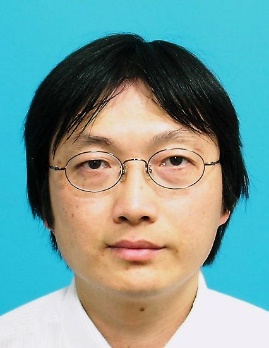
Keynote Speech 17: Prof. Yang Shi (University of Victoria, Canada)
Title: Teleoperation of Swarm Robotics
Speaker: Yang Shi, Professor, Fellow of IEEE, ASME, CSME, EIC, CAE
University of Victoria, Canada
Abstract: In this talk, a recent work on the teleoperation of sward robotics will be introduced. During swarm teleoperation, the human operator may threaten the distance-dependent inter-robot communications and, with them, the connectivity of the slave swarm. To prevent the harmful component of the human command from disconnecting the swarm network, we develop a constructive strategy to dynamically modulate the interconnections of, and the locally injected damping at, all slave robots. By Lyapunov-based set invariance analysis, the explicit law for updating that control gains has been rigorously proven to synchronize the slave swarm while preserving all interaction links in the tree network. By properly limiting the impact of the user command rather than rejecting it entirely, the proposed control law enables the human operator to guide the motion of the slave swarm to the extent to which it does not endanger the connectivity of the swarm network.
Biography: Yang SHI received his B.Sc. and Ph.D. degrees in mechanical engineering and automatic control from Northwestern Polytechnical University, Xi’an, China, in 1994 and 1998, respectively, and the Ph.D. degree in electrical and computer engineering from the University of Alberta, Edmonton, AB, Canada, in 2005. He was a Research Associate in the Department of Automation, Tsinghua University, China, during 1998-2000. From 2005 to 2009, he was an Assistant Professor and Associate Professor in the Department of Mechanical Engineering, University of Saskatchewan, Saskatoon, SK, Canada. In 2009, he joined the University of Victoria, and now he is a Professor in the Department of Mechanical Engineering, University of Victoria, Victoria, BC, Canada. His current research interests include networked and distributed systems, model predictive control (MPC), cyber-physical systems (CPS), robotics and mechatronics, navigation and control of autonomous systems (AUV and UAV), and energy system applications.
On teaching and mentorship, Dr. Shi received the University of Saskatchewan Student Union Teaching Excellence Award in 2007, and the Faculty of Engineering Teaching Excellence Award in 2012 at the University of Victoria (UVic), and the 2023 REACH Award for Excellence in Graduate Student Supervision and Mentorship. On research, he is the recipient of the JSPS Invitation Fellowship (short-term) in 2013, the UVic Craigdarroch Silver Medal for Excellence in Research in 2015, the 2017 IEEE Transactions on Fuzzy Systems Outstanding Paper Award, the Humboldt Research Fellowship for Experienced Researchers in 2018; CSME Mechatronics Medal (2023); IEEE Dr.-Ing. Eugene Mittelmann Achievement Award (2023); the 2024 IEEE Canada Outstanding Engineer Award. He is IFAC Council Member; VP on Conference Activities of IEEE IES and the Chair of IEEE IES Technical Committee on Industrial Cyber-Physical Systems. Currently, he is Editor-in-Chief of IEEE Transactions on Industrial Electronics (2025/01-); he also serves as Associate Editor for Automatica, IEEE Transactions on Automatic Control, Annual Review in Controls, etc.
He is a Fellow of Royal Society of Canada (RSC), Canadian Academy of Engineering (CAE), Engineering Institute of Canada (EIC), IEEE, ASME, CSME, and a registered Professional Engineer in British Columbia, Canada.

个人简介:
施阳博士, 1998年于西北工业大学获得博士学位;2005年于加拿大阿尔伯塔大学获得电子与计算机工程博士学位。2005-2009在加拿大萨斯喀彻温大学任助理教授及副教授;目前为加拿大维多利亚大学机械工程系终身教授。 施阳博士的研究集中于工业信息物理系统、网络及分布式控制系统、模型预测控制、机电系统及机器人系统设计与控制、能源系统的优化调度与控制等。
他2007获得加拿大萨斯卡彻温大学十佳教学奖;2012年获得维多利亚大学工学院最佳教学奖。2015年获得维多利亚大学年度唯一的最佳研究银奖(Craigdarroch Silver Medal);2013年获得日本学术振兴会特邀访问教授奖;获得2017年IEEE Transactions on Fuzzy Systems年度最佳论文奖;2018年获得德国洪堡研究基金; 2023年获得加拿大机械工程师协会两年颁发一次的Mechatronics奖章;2023年获得IEEE尤金·米特尔曼成就奖;2024年获得IEEE Canada 杰出工程师奖 (IEEE Canada Outstanding Engineer Award)。曾任IEEE工业电子学会副主席,IES工业信息物理系统技术委员会主席(2019/1-2022/12)。目前任IFAC理事会成员(Council member);任IEEE Transactions on Industrial Electronics的主编,任多家国际期刊的副编辑,包括:Automatica, IEEE Transactions on Automatic Control, Annual Review in Controls等。
施阳教授是加拿大皇家科学院院士,加拿大工程院院士,加拿大工程研究院院士,是IEEE Fellow(国际电子电器工程师协会), ASME Fellow(美国机械工程师协会)和CSME Fellow(加拿大机械工程师协会)。
Keynote Speech 18: Magnetic Quantum Detection Technology of Near-Earth Targets⇒
By Prof. Zhaohui Zhang (Beijing University of Science and Technology)
Abstract/Full Text Translation
Keynote Speech 22: Mean field games and their large network limits⇒
By Prof. Minyi Huang(School of Mathematics and Statistics, Carleton University)
Abstract: Mean field game (MFG) theory provides a powerful tool to tackle large-population non-cooperative dynamic games, and has found
applications in many areas including economics and finance, engineering, and public health.
This talk describes how to extend MFG theory to models with subpopulations distributed over large scale networks, addressing a new form of
agent heterogeneity. The dense case can be treated using graphon networks. For the sparse case, we apply appropriate scaling to obtain a
meaningful limit, allowing to capture influence of neighboring subpopulations in the large sparse network limit.
Based on joint work with Prof Peter Caines and Dr Tian Chen
Short bio:
Minyi Huang received the B.Sc. degree from Shandong University, Jinan, Shandong, China, in 1995, the M.Sc. degree from the Institute of Systems
Science, Chinese Academy of Sciences, Beijing, in 1998, and the Ph.D. degree from the Department of Electrical and Computer Engineering, McGill
University, Montreal, QC, Canada, in 2003, all in systems and control. He was a Research Fellow first at the University of Melbourne, Australia, from
February 2004 to March 2006, and then at the Australian National University, Canberra, from April 2006 to June 2007. He joined the School of
Mathematics and Statistics, Carleton University, Ottawa, ON, Canada in 2007, where he is now a Professor. His research interests include mean
field stochastic control and dynamic games, multi-agent control and computation in distributed networks with applications. He is a Fellow of IEEE
and a member of SIAM.
Keynote Speech 23: AI for Digital Twin⇒
By Prof. Yan Zhang(University of Electronic Science and Technology of China)
abstract:In this talk, we mainly introduce our recent studies on digital twin networks. We first present the concept and model related to Digital Twin (DT). Then, we focus on new research challenges and results when machine learning is exploited in DT, including federated learing, deep reinforcement learning and transfer learning and the applications in communications.
Yan Zhang, Professor at University of Electronic Science and Technology of China (UESTC), IEEE Fellow, IET Fellow, and Clarivate Analytics "Highly Cited Researcher." Elected member of MAE, DKNVS, and NTVA. His recent research focuses on next-generation wireless networks and intelligent and secure Internet of Things (IoT). His work has been cited over 53,000 times with an H-index of 118. He is now serving as
Co-Editor-in-Chief of IEEE Transactions on Industrial Informatics (IEEE TII), Area Editor for IEEE Transactions on Green Communications and Networking (IEEE TGCN), Senior Editor for IEEE Systems, and editor of multiple IEEE Transactions/Magazines and Chinese scientific journals.
AI与机器人教育专委会分论坛
第一部分:论坛主持人介绍:
1、李擎:中国教育发展战略学会人工智能与机器人教育专委会副理事长
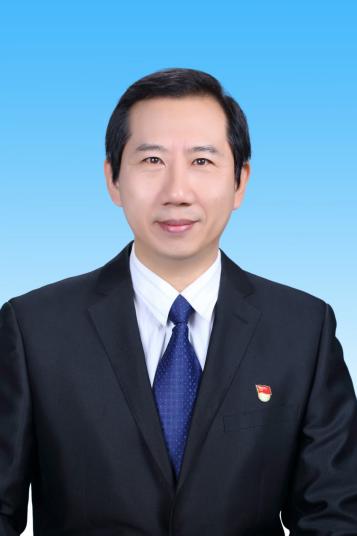 李擎,北京科技大学二级教授、博士生导师、学校教学委员会委员、教学督导组成员。享受国务院政府特殊津贴,国家级一流本科专业建设点、一流本科课程负责人,北京市高等学校教学名师、北京市教育系统教书育人榜样、北京市课程思政教学名师、北京市优秀教师、宝钢优秀教师奖获得者、北京高校优秀本科教学管理人员、北京高校优秀党务工作者、首都大中专学生暑期社会实践先进工作者。兼任教育部高等学校自动化类教学指导委员会协作委员,中国自动化学会和中国人工智能学会教育工作委员会委员,中国教育发展战略学会人工智能与机器人教育专委会常务理事、副理事长,中国工程教育专业认证协会电子信息与电气工程类专业认证专家,教育部审核评估专家。
李擎,北京科技大学二级教授、博士生导师、学校教学委员会委员、教学督导组成员。享受国务院政府特殊津贴,国家级一流本科专业建设点、一流本科课程负责人,北京市高等学校教学名师、北京市教育系统教书育人榜样、北京市课程思政教学名师、北京市优秀教师、宝钢优秀教师奖获得者、北京高校优秀本科教学管理人员、北京高校优秀党务工作者、首都大中专学生暑期社会实践先进工作者。兼任教育部高等学校自动化类教学指导委员会协作委员,中国自动化学会和中国人工智能学会教育工作委员会委员,中国教育发展战略学会人工智能与机器人教育专委会常务理事、副理事长,中国工程教育专业认证协会电子信息与电气工程类专业认证专家,教育部审核评估专家。
教学方面:负责教育部新工科研究与实践项目等国家级和省部级教研项目10余项;一二作者身份发表CSSCI和中文核心期刊教改论文40余篇;作为主编或副主编出版教材20余部(其中科学出版社9部、清华大学出版社3部、机械工业出版社4部、电子工业出版社2部、冶金工业出版社4部、化学工业出版社2部),获批国家级规划教材1部(主编)、北京市精品教材1部(副主编)、北京高校优质本科教材3部(主编2部、参编1部);以负责人身份获评国家级教学成果奖二等奖,霍英东教育基金会高等院校教育教学奖二等奖,北京市高等教育教学成果奖一、二等奖,CAA教育教学成果奖一、二等奖,CAAI教学成果激励计划二类成果各1项;作为负责人获批北京高校优秀本科育人团队、北京市课程思政教学团队、北京高校优秀本科教学实验室、北京市课程思政示范课程、北京高校优质本科课程、、北京高校优秀本科教案、北京高校优秀本科课件等省部级教学奖励近30项。
科研方面:作为无人驾驶与机器人集群梯队负责人,长期从事机器人路径规划及智能控制、多智能体编队、图像处理技术的研究与应用研究,负责国家自然科学基金面上项目、科技部外专引智项目、工信部标准制定等纵向项目近10项;聚焦冶金行业智能制造,主持鞍钢集团等企业百万元以上横向项目7项;先后参与国家973、863、重点研发计划(重点专项)、自然科学基金重点、JWKJW重点等纵向项目多项。以第一或通信作者身份在《Automatica》《Neural Networks》等国际期刊和《自动化学报》《控制理论与应用》等中文核心期刊上发表SCI/EI检索论文100余篇,其中中科院一区、二区论文80余篇(含高被引论文2篇);出版学术专著5部(其中Springer出版社3部、冶金工业出版社2部);第一发明人身份授权日本发明专利1项、第一二发明人身份授权国内发明专利近20项;参与制定国际标准1项、国内团体标准3项;获得北京市科技进步奖一等奖、陕西省科技进步奖一等奖、冶金矿山科学技术奖一等奖、环境技术进步奖一等奖、军队科技进步奖二等奖、冶金工业科技进步奖二等奖、中国职业安全健康协会科技进步奖二等奖、中国黄金协会科技进步奖二等奖、中国煤炭工业协会科学技术奖二等奖、中国产学研合作创新与促进奖二等奖等省部级科研奖励20余项。
2、常根景:中国教育发展战略学会人工智能与机器人教育专委会常务副秘书长
 中国教育发展战略学会人工智能与机器人教育专委会常务副秘书长、中国仿真学会大数据专委会副秘书长、杭州科技职业技术学院高水平专业建设顾问、南京信息职业技术学院人工智能专业群产业教授、北京信息科技大学低空无人器创业导师、河南工学院创客专家、黄河水利职院创业导师、天津理工大学中环信息学院特聘专家、西交利物浦大学校外导师、教育部全国职业院校技能大赛国赛裁判、中国机器人及人工智能大赛(教育部A 类国赛)智能巡检赛项负责人;广西教育厅本科院校电气工程与自动化教指委委员、安徽省教育厅移动机器人大赛副主任、青海省教育厅职教大赛专家、海南省人工智能学会教育专委会副主任、北京市HICOOL 全球创业大赛评审专家(北京市海外高层次人才协会)、中国机电一体化技术应用协会智能机器人分会副秘书长、恰佩克大奖评审专家兼产教融合50 强论坛秘书长、北京物联网学会副秘书长、双高绩效数字化专家、全国智能协作机器人产教融合共同体顾问、中国人工智能学会《2023 年数字技能人才白皮书》评审专家、全国首届新基建论文教育教学研讨会组织委员会主席、北京德诚聚天航空科技有限公司创始人。
中国教育发展战略学会人工智能与机器人教育专委会常务副秘书长、中国仿真学会大数据专委会副秘书长、杭州科技职业技术学院高水平专业建设顾问、南京信息职业技术学院人工智能专业群产业教授、北京信息科技大学低空无人器创业导师、河南工学院创客专家、黄河水利职院创业导师、天津理工大学中环信息学院特聘专家、西交利物浦大学校外导师、教育部全国职业院校技能大赛国赛裁判、中国机器人及人工智能大赛(教育部A 类国赛)智能巡检赛项负责人;广西教育厅本科院校电气工程与自动化教指委委员、安徽省教育厅移动机器人大赛副主任、青海省教育厅职教大赛专家、海南省人工智能学会教育专委会副主任、北京市HICOOL 全球创业大赛评审专家(北京市海外高层次人才协会)、中国机电一体化技术应用协会智能机器人分会副秘书长、恰佩克大奖评审专家兼产教融合50 强论坛秘书长、北京物联网学会副秘书长、双高绩效数字化专家、全国智能协作机器人产教融合共同体顾问、中国人工智能学会《2023 年数字技能人才白皮书》评审专家、全国首届新基建论文教育教学研讨会组织委员会主席、北京德诚聚天航空科技有限公司创始人。
第二部分:报告嘉宾介绍:
1、丁数学:桂林电子科技大学人工智能学院首任院长

丁数学博士,桂林电子科技大学人工智能学院教授、博士生导师。1996年获日本东京工业大学博士学位。2014年天津市千人计划(创新短期)入选者,2015年起兼任南开大学光学与电子信息工程学院讲座教授,博士生导师。曾任日本会津大学终身教授,认知科学研究室主任,计算机与系统工程系主任,会津大学教育与研究审议会委员等职务。曾多年兼任日本理化学研究院脑科学研究中心客员研究员。IEEE Systems, Man & Cybernetics Society, Awareness Computing技术委员会委员及主要发起人之一。2019年3月-2022年6月受聘为桂林电子科技大学人工智能学院创院院长全职回国工作。兼任桂林市经华高新技术产业研究院长。
主要从事人工智能,机器学习,智能超材料/超表面,信号及图像处理,神经计算,大数据等方面的研究。现主持国家自然科学基金面上项目一项:非线性框架(Frame)表现及字典学习与神经网络的非梯度反向传播学习算法;广西科技重大专项一项:人工智能混合架构计算平台构建与应用研究。在日期间曾主持日本学术振兴会(JSPS)科学研究基金项目(相当于中国国家自然科学基金项目)4项。共发表论文200余篇;其中期刊论文120余篇,包括90余篇SCI检索期刊论文,近30篇IEEE Internet of Things Journal , IEEE Transactions on Neural Networks and Learning Systems , IEEE Transactions on Signal Processing等重要IEEE期刊论文。
第三部分:课题报告专家介绍:
1、肖成勇:北京科技大学高级工程师

报告主题:《AI大模型赋能智能制造综合实践教学平台探索与实践》
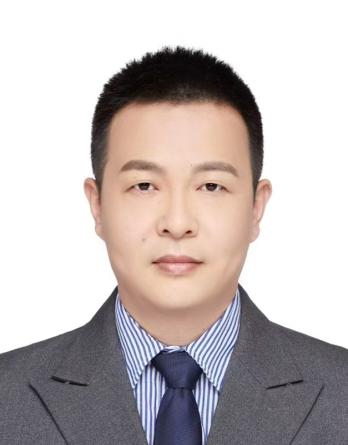 2、王子民:桂林电子科技大学计算机与信息安全学院副教授
2、王子民:桂林电子科技大学计算机与信息安全学院副教授
报告主题:《面向东盟的新兴科技赋能产教融合、跨学科、跨领域协同育人创新机制研究》
王子民,男,汉族,党员,桂林电子科技大学计算机与信息安全学院副教授。博士毕业于西安电子科技大学。目前从事机器学习、智能信息处理、模式识别等教学与研究工作。 2022-2024年在自治区发展和改革委员会、自治区工业和信息化厅挂职。曾获得广西高等教育自治区级教学成果特等奖,八桂人工智能科学技术奖二等奖。发表各类论文60余篇,专著2部,申请或授权国家专利50余项。指导学生获得ACM-ICPC国际大学生程序设计大赛亚洲区域赛金奖。担任桂电广西大数据研究院培训部主任,中国仿真学会大数据与系统仿真专委会委员,广西人工智能学会理事,广西计算机学会青少年信息科教专委会顾问,广西大学生程序设计大赛组委会秘书长,广西大学生人工智能设计大赛组委会秘书长。
简介:面向东盟的新兴科技赋能产教融合跨学科跨领域协同育人创新机制研究对于推动教育与产业深度融合、促进跨学科跨领域合作、增强区域合作与竞争力以及推动科技创新与成果转化等方面都具有重要的意义和价值。从新兴科技在产教融合中的创新应用、跨学科跨领域协同育人机制的构建、、面向东盟的教育合作与人才流动模式的创新、产教融合协同育人创新机制的实施效果评估体系的建立等方面,深入探索新兴科技赋能产教融合跨学科跨领域协同育人创新机制,为区域经济社会发展提供有力的人才支撑和智力支持。
3、祁亨年:湖州师范学院科技处处长
报告主题:《复杂场景古今汉字检测与识别研究》
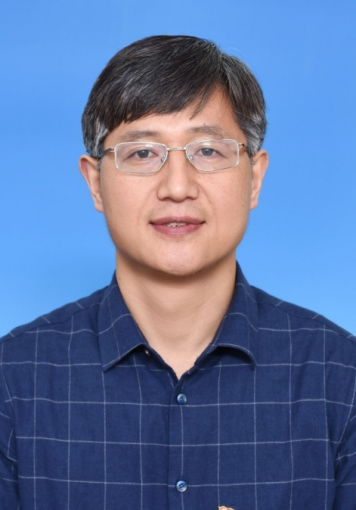
祁亨年,教授,博士生导师,湖州师范学院科技处处长(2024-),获兰州大学理学学士(1996)、硕士学位(1999),浙江大学工学博士(2005)、华南理工大学信息机械博士后(2006-2008);曼彻斯特大学访问学者(2018-2019)。主要从事人工智能、中文数字化、农业智能光谱检测技术等方向的研究。历任浙江农林大学信息工程学院讲师(2000)、副院长(2003-2014)、副教授及硕导(2004)、教授(2009),浙江省林业智能监测与信息技术研究重点实验室副主任(2013-2015);湖州师范学院学科规划与建设处、党委研工部部长和研究生院院长(2016-2024)、科技处处长(2024-)。浙江省“新世纪151人才工程”、省高校“教坛新秀”,省中青年学科带头人。主持完成包括国家自然科学基金、国家863计划、浙江省重点研发计划、浙江省自然科学基金、科技部中小企业创新基金项目、教育部委托项目等省部级以上项目近20项。已发表各类研究论文130余篇,其中SCI/EI检索80余篇;授权国内外发明专利20余项;获广东省科技奖一等奖(2012)、中国商业联合会服务业科技创新奖一等奖(2022)、中国发明协会发明创业奖成果奖二等奖(2022)、中国技术市场协会三农科技服务金桥奖项目三等奖(2023)。
4、靳励行:西安电子科技大学杭州研究院助理研究员
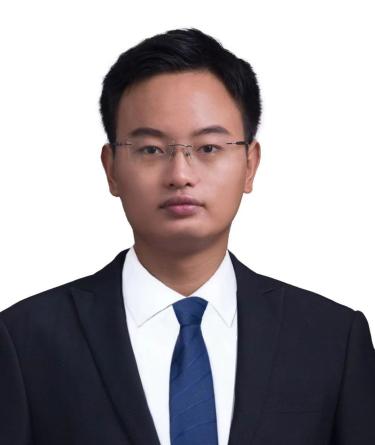 报告主题:《手术机器人力反馈主从操作控制器关键技术》
报告主题:《手术机器人力反馈主从操作控制器关键技术》
靳励行,西安电子科技大学杭州研究院助理研究员,2023年博士毕业于北京理工大学,长期从事医疗机器人技术研究,尤其专注于机器人机构创新设计。多次作为项目骨干参与国家重点研发计划、国家自然科学基金等项目的申报和实施。
报告简介:主从操作控制器(主手)是遥操作手术机器人系统的核心部件,也是人机交互的典型设备。通过并联机构构型综合与演化、并联弹性驱动与多维负载补偿、基于接触力估计的闭环阻抗控制等关键技术研究和突破,研制集串并联机构优势于一体的高灵活性和高力反馈主手,助力手术机器人系统性能提升。
5、王兴:安徽三联学院现代康养产业学院副院长、总工程师,教授,硕导

王兴,男,汉族,1982年出生,中共党员,教授,硕导。研究方向:服务机器人与康复辅具应用、AI技术与康养服务融合。
现任安徽三联学院现代康养产业学院总工程师、副院长;中国老龄事业发展基金会康养产教融合基金管委会副秘书长;安徽金员外健康产业发展有限公司总经理;安徽省“教坛新秀”;中国数字工匠年度人物;恰佩克中国产教融合教学名师奖获得者。发表国内外论文40余篇;主持省厅级重点科研项目多项;获国家发明专利8项,实用新型专利10余项。创建“医工信融合场景化教学”人才培养模式;指导学生多次在省级以上比赛中获奖。
6、曾子铭:深圳职业技术大学本科教育学院副教授
报告题目:AI赋能智能网联汽车职业教育的探索与实践
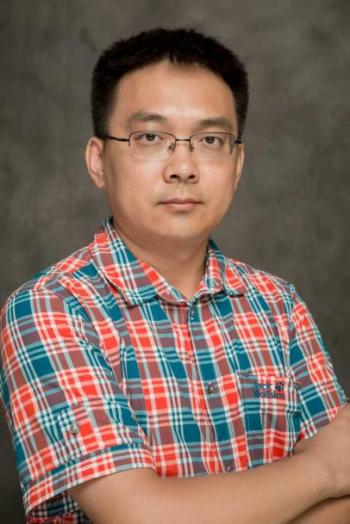
曾子铭,深圳职业技术大学本科教育学院智能网联汽车工程技术专业教师,副教授,深圳市高层次人才,深圳市创业导师。博士毕业于英国亚伯大学,曾主持和参与国家及省市级课题 10 余项,发表 SC1、EI检索论文 40 余篇、授权知识产权 20 余项,出版教材3部。指导学生获得全国职业院校技能大赛智能网联汽车技术赛项一等奖、“维脉杯”全国高等职业学校“智能交通系统集成与应用技能竞赛”特等奖,并指导学生连续 4年获得广东省职业院校技能大赛一等奖。
7、杨富超:河南工学院智能工程学院副院长
报告主题:《应用型本科院校“专创融合”育人模式实践与探索》
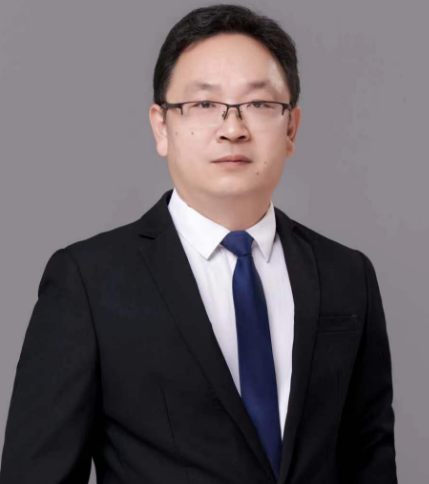
杨富超,先后获得河南省优秀共产党员、恰佩克产教融合名师、新乡市青年智能制造产业导师、优秀教师等称号;中国教育发展战略学会人工智能与机器人教育专委会常务理事,河南省人工智能学会人工智能通识教育专委会副秘书长等;从事教学工作25年,主要承担机器人工程导论、机器人应用技术、工业机器人技术等课程的理论和实践教学工作;主持河南省普通高等教育“十四五”规划教材《机器人编程与系统集成》建设项目、河南省本科高校产教融合研究项目等;《冗余空间机械臂的智能规划算法研究》等科研项目6项,《Enhancing visual tracking through visual language fusion and state update evaluator》等论文8项。
8、黄莺:广西生态工程职业技术学院人工智能产业学院院长
报告主题:《智能科技驱动跨学科心流学习模式创新》
 黄莺,教授,高级双师型教师,电工高级技师,第二批全国黄大年式教师团队负责人、教育部思政课程教学名师、全国优秀教师、第六届黄炎培职业教育杰出教师,中国机电一体化行业技能大师。主持或参与完成科研项目、教改课题28项;在国内外期刊发表论文80余篇,其中SCI 13篇、EI 16篇、北大中文核心期刊9篇;获得授权专利8项、计算机软件著作权14项;主编出版教材3部、专著2部,参与编写6部;获国家级教学成果奖二等奖1项、省部级教学成果奖特等奖2项;指导学生参加职业技能竞赛获得国家一等奖2项目、二等奖2项、三等奖13项、省级一等奖7项、二等奖9项、三等奖10项,指导学生参加创新创业大赛获得国家级铜奖1项、省部级金奖3项、银奖2项、铜奖6项。
黄莺,教授,高级双师型教师,电工高级技师,第二批全国黄大年式教师团队负责人、教育部思政课程教学名师、全国优秀教师、第六届黄炎培职业教育杰出教师,中国机电一体化行业技能大师。主持或参与完成科研项目、教改课题28项;在国内外期刊发表论文80余篇,其中SCI 13篇、EI 16篇、北大中文核心期刊9篇;获得授权专利8项、计算机软件著作权14项;主编出版教材3部、专著2部,参与编写6部;获国家级教学成果奖二等奖1项、省部级教学成果奖特等奖2项;指导学生参加职业技能竞赛获得国家一等奖2项目、二等奖2项、三等奖13项、省级一等奖7项、二等奖9项、三等奖10项,指导学生参加创新创业大赛获得国家级铜奖1项、省部级金奖3项、银奖2项、铜奖6项。
系统控制之美论坛
一、领导专家致辞
二、专家报告 1:夏元清会士:中原工学院、北京理工大学 云控制与决策 Cloud Control and Decision-Making
简介:夏元清,男,54岁,中共党员,控制科学与工程领域专家。国家杰出青年基金获得者,教育部长江学者特聘教授,国家“万人计划”领军人才,IEEE Fellow,CAA Fellow,享受国务院特殊津贴专家。现任中原工学院校长,北京理工大学讲席教授;国务院学位委员会第八届学科评议组成员,中国计算机学会大数据专家委员会委员,中国仪器仪表学会物联网工作委员会副理事长,中国指挥与控制学会云控制与决策专业委员会主任委员,天基智能信息处理全国重点实验室副主任。长期致力于多源信息复杂系统的信息处理与控制、飞行器控制、无人移动平台协同控制、空天地海一体化网络环境下多运动体系统跨越协同控制与智能决策、云控制与决策等研究,承担国家重点研发计划、国家自然科学基金重点项目、973计划等多层次科研项目多项。在国际上首次提出“云控制”概念,并建立相关理论与技术体系,赋能天空地海有人、无人系统,智能制造等领域,极大提升了感知、决策与控制品质。获国家科技进步二等奖1项,教育部自然科学二等奖2项,北京市科学技术二等奖3项,国防科技进步三等奖1项,吴文俊人工智能自然科学奖一等奖1项、二等奖1项,中国自动化学会自然科学一等奖1项、科技进步一等奖1项,中国指挥与控制学会科学技术奖一等奖1项等。发表学术论文1000余篇,其中SCI收录800余篇,申请发明专利100余件,出版英文专著22部,中文专著3部,论文累计被引38000余次;2014年至今连续入选Elsevier中国高被引学者榜单;入选斯坦福全球前2%顶尖科学家终身科学影响力榜单。荣获“2024年河南省最美科技工作者”等荣誉称号。
题目:智能网联无人系统云控制理论与技术
Cloud Control Theory and Technology for Intelligent and Networked Unmanned Systems
摘要:智能网联无人系统云控制是未来群体智能机器人产业发展的战略方向。由于群体智能机器人运行的复杂性和特殊性,上下游企业之间、不同行业之间,以及智能机器人各体间都存在信息壁垒,严重限制了高级别群体智能机器人的发展。全域感知和精准控制作为智能网联无人系统云控制的关键核心问题,目前存在数据融合与数字孪生的瓶颈。随智能机器人规模增加,个体之间强耦合特性与多约束特性更加凸显,严重影响算法计算效率和实际性能。基于误差反馈的控制方法难以适应动态拓扑变化的云控制问题,且面临大规模、强耦合、多约束、解算慢等挑战,因此亟需研究智能网联无人系统云控制方法,实现复杂环境下群体智能机器人实时动态精准控制。智能网联无人系统云控制理论与技术研究聚焦人工智能、智能网联与低空经济等战略性新兴领域,紧密围绕国家“发展新质生产力”和“加快现代化产业体系建设”的政策导向,积极服务中国式现代化与区域高质量发展。推动智能网联无人系统云控制的落地进程,对我国抢占世界科技创新和产业迭代高地具有重要意义。
四、专家报告 3:张艳霞:北京理工大学 关于线性子空间之间的角度度量 on the angular metrics between linear subspaces
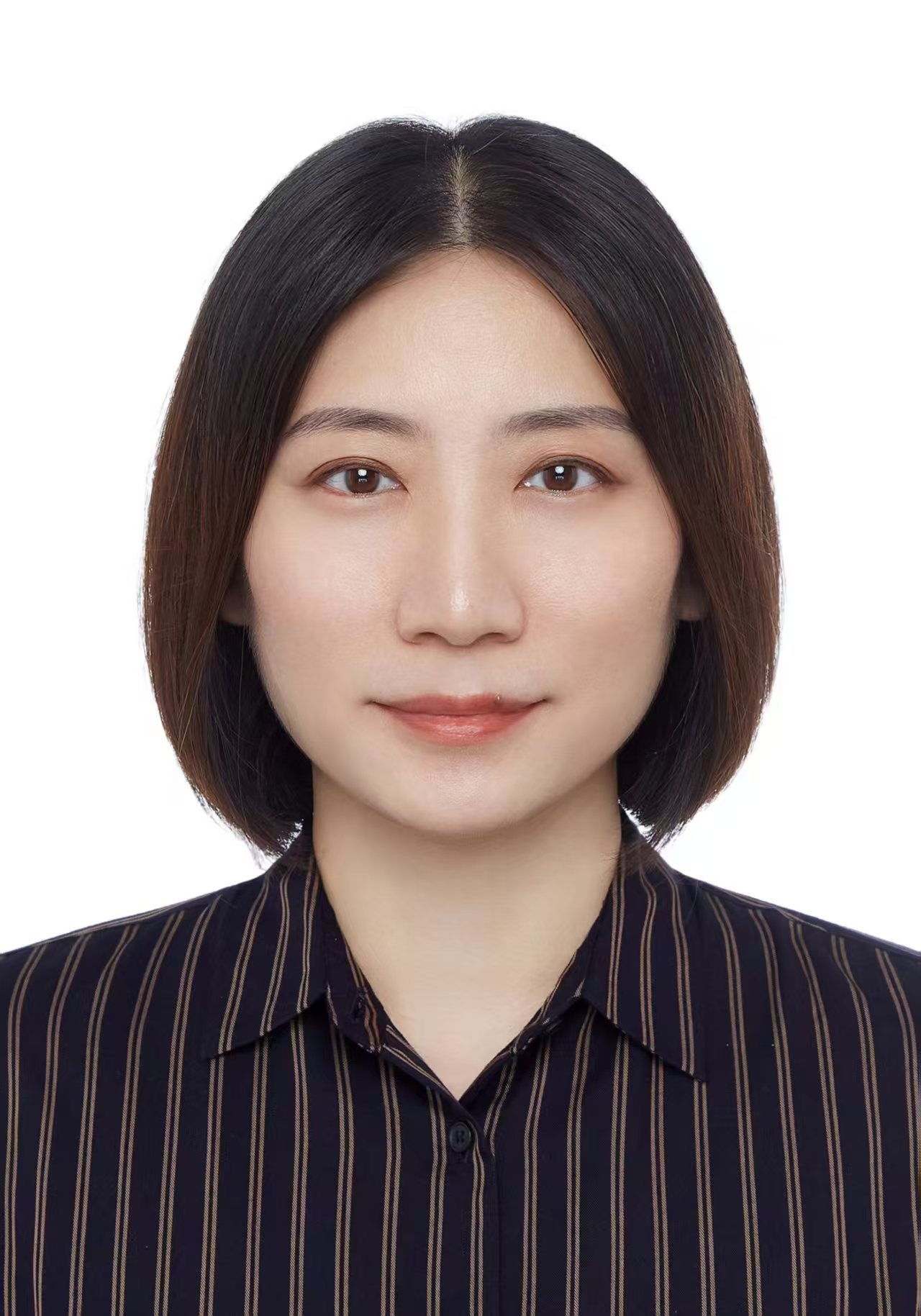
五、专家报告 4:王琳:上海交通大学 自动驾驶测试场景生成与综合评测方法研究 Study on Test Scenario Generation and Comprehensive Evaluation Methods for Autonomous Driving
科学的测试与评价是推动自动驾驶技术进步的重要基础和核心保障。随着大量人工智能算法融入自动驾驶的感知、决策等模块,对测试评价方法的精度和效率等方面提出了新需求。由于关键测试场景的稀缺性、复杂性和高维性,如何有效生成用于自动驾驶测试的关键测试场景已成为一个重大挑战。本报告旨在为关键边界测试场景提供一个具有灵活复杂度和多样性的在线自适应生成框架,以测试自动驾驶汽车的综合性能。在此基础上,探讨用于自动驾驶车辆综合性能评估的客观多维度综合评测方法。为了保证自动驾驶车辆评测的客观性和测试效率,提出了一套完整的包含两个评测维度、五个一级指标、十四个二级指标的综合评价体系。为了实现全流程自动化的评测,提出了基于场景复杂度模型的客观评测指标权重计算方法和可缩放的评测结果计算方法。所开发的自动化评测体系和评测方法可以同时应用于自动驾驶车辆仿真测试、硬件在环测试、实车在环测试以及实车测试,可以有效提升测试效率,加速智能驾驶车辆的实际应用部署。
六、专家报告 5:穆义芬:中国科学院数学与系统科学研究院 对学习算法的最优对策及重复博弈中的异同 Optimal Responses to Learning Algorithms and Heterogeneous Dynamics in Repeated Games: Starting with Human-Machine Games
简介: 穆义芬,中国科学院数学与系统科学研究院副研究员,博士生导师。研究方向为博弈论与博弈学习理论。2005年于北京大学数学科学学院获理学学士学位、哲学双学士学位;2010年于中科院数学与系统科学研究院获理学博士学位。现为中国运筹学会博弈论分会理事、CCF计算经济学专委会执委、中科院数学与系统科学研究院“博弈学习演化与自适应控制机制”团队负责人、国家数学与交叉科学中心数学与信息技术交叉研究部“复杂系统博弈理论”方向联合负责人、期刊 Journal of Dynamics and Games编委、期刊Journal of Advanced Computational Intelligence and Intelligent
Informatics (JACIII) Associate Editors (AE). 曾获“关肇直青年研究奖”,研究论文获2024年关肇直奖(2/1672),2023年the 8th International Workshop on Advanced Computational Intelligence and Intelligent Informatics(IWACIII) Young Researcher Award,2022 年IEEE CSS Beijing Chapter Young Author Nomination Prize等。
Title: 对学习算法的最优对策及重复博弈中的异质动力学:从人机博弈开始
The algorithm exploitation and heterogeneous learning dynamics: all from human-machine games
摘要:随着互联网、大数据、算法与人工智能等技术不断发展,社会进入智能系统时代,大量算法辅助或参与决策特别是博弈决策。当算法作为主体进行博弈时,人机博弈成为一个自然的研究课题,对其研究具有多方面意义,既可以帮助改进设计算法,又可以为算法规制提供理论支持。大约20年前,基于控制论与博弈论相结合的思想,郭雷院士极其富有前瞻性地首倡研究人机博弈与博弈控制系统。在这一框架下,数学院博弈论研究团队得到了一系列具有特色的研究成果,如对经典机器策略或学习算法的最优对策、最优对策下系统的周期与拟周期行为、基于人机博弈框架的异质博弈动力学以及相应的纳什均衡新解法等。目前这一研究课题受到计算机、控制论、博弈论等许多领域学者越来越多的关注,研究也不断拓展和深入。本报告将介绍数学院师生在郭雷院士指导下取得的相关研究成果,并对未来研究尝试展望,以此敬贺郭雷院士64岁寿辰,恭祝郭老师生日快乐、福寿安康!
七、专家报告 6:潘豪:航天十二所 运载火箭高可靠姿态控制技术 High-Reliability Attitude Control Technology for Launch Vehicles
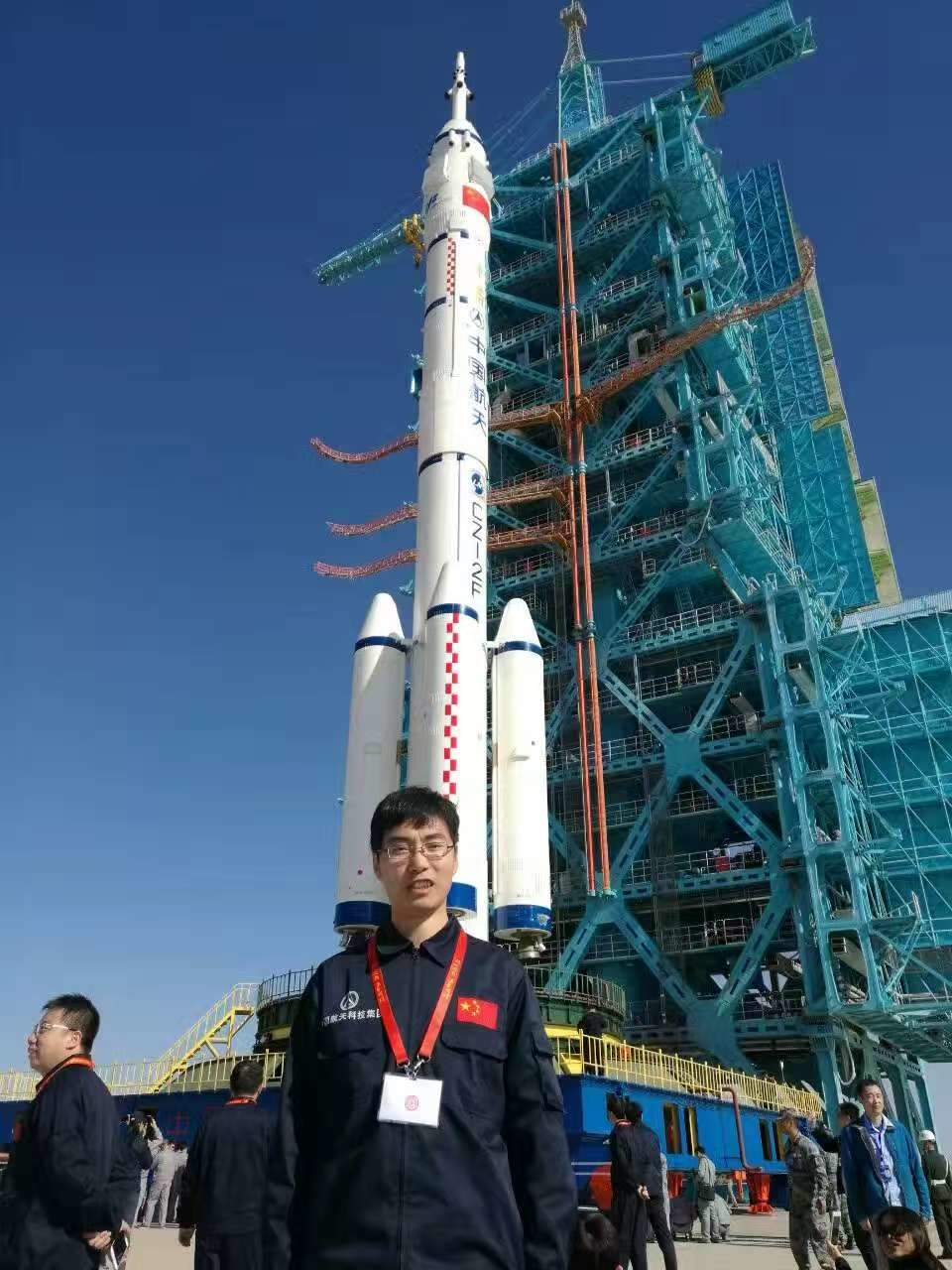
八、专家报告 7:丛新蓉:北京工商大学 基于参数不确定性的机翼可压缩流动控制研究 Study on Compressible Flow Control of Wings Based on Parametric Uncertainty
丛薪蓉,北京工商大学数学与统计学院应用统计系副教授,硕士生导师。博士毕业于哈尔滨工业大学数学系,随后于中国科学院数学与系统科学研究院完成博士后研究。长期致力于随机与不确定性动力系统的估计与控制,随机系统数值算法与仿真、风险决策与控制的研究。对于来自经济、金融、航空航天等领域的随机动力系统,利用随机微分方程、随机分析、数理统计等理论,对系统的可控性及稳定性进行研究。主持国家自然科学基金青年项目 1 项,参与国家自然科学基金面上项目3项。
摘要:跨音速机翼流动中存在的激波会导致阻力增加、升力降低乃至抖振等不利现象,主动流动控制是抑制这些现象的有效手段。然而,实际飞行环境中存在的参数不确定性,如来流马赫数、攻角及气动外形等的随机波动,会显著影响控制的鲁棒性与可靠性。为此,针对某典型机翼,开展考虑参数不确定性的可压缩流动控制研究。首先,通过求解雷诺平均Navier-Stokes方程,构建高保真度流场模型;在此基础上,引入主动控制策略作为控制手段。进而,采用多项式混沌展开等不确定性量化方法,系统量化关键不确定参数对系统输出的影响程度与统计规律。最终,基于量化分析结果,设计并评估了一种鲁棒控制策略。研究结果表明,相较于传统的确定性控制设计,所提出的鲁棒控制方法在参数存在摄动时,能更稳定地维持控制效果,显著提升了机翼在不确定飞行环境下的气动性能与安全性能。
简介:Shuo Yuan (袁硕) received her B.S. degree in mathematics from Shandong University in 2015, and Ph.D. degree in operational research and cybernetics from Academy of Mathematics and Systems Science, Chinese Academy of Sciences in 2020. She was a postdoctoral fellow from 2020 to 2022 at Chinese Academy of Sciences. She is currently a postdoctoral fellow with the Department of Electrical and Computer Engineering, Wayne State University, USA. Her research interests include robust control, adaptive control, nonlinear systems, and power systems.
题目:含间歇性电源的电力系统随机自适应下垂控制
Stochastic Adaptive Droop Control of Power Systems with Intermittent Generators
摘要:Modern power systems including microgrids are increasingly incorporating multiple renewable energy sources (RESs) such as wind and solar power, as well as battery storage and controllable loads. While environmentally beneficial, these sources pose challenges for control and management due to their intermittent and stochastic nature, especially in maintaining frequency stability with multiple interconnected generators of varying capacities. Traditional droop control methods are effective in systems with generators that are dispatchable and have fixed generation capacities, but they fall short when applied to systems with RESs, where generation capacities are dynamic and affected by unpredictable environmental conditions. To address these challenges, we introduce a novel stochastic adaptive droop control method for load frequency control. The proposed method adapts droop coefficients in real time, based on the measured stochastic data of power generation capacities, enabling more effective frequency regulation in systems with variable and intermittent power generation. Unlike traditional adaptive control methods, which assume system parameters vary slowly or remain constant, this approach accounts for stochastic processes by modeling them as Markov chains, enabling robust performance under highly dynamic and unpredictable conditions. The key contributions of this work include the development of real-time droop coefficient adaptation algorithms, the derivation of their stability and convergence properties, and the demonstration of the advantages of the method through simulations. Case studies highlight the improved performance of frequency regulation, particularly in addressing the impact of stochastic weather conditions and the beneficial role of battery reserves in enhancing the robustness of the system.
简介:苏伟,北京交通大学数学与统计学院副教授。主要研究领域包括复杂系统建模与控制、随机系统分析与控制等。在IEEE Automatic Control, Automatica 等期刊上发表学术论文10余篇,出版英文专著1部,主持及参与国家、省部级基金项目多项。
Wei Su is an Associate Professor at the School of Mathematics and Statistics, Beijing Jiaotong University. His main research interests include modeling and control of complex systems, analysis and control of stochastic systems, etc. He has published academic papers in journals such as IEEE Automatic Control and Automatica, authored one English monograph, and led or participated in multiple national and provincial-level fund projects.
摘要:随机噪声驱动下的同步是自组织复杂系统中一个广泛存在却缺乏严格理论阐释的经典现象。本报告首先基于观点动力学中的Hegselmann-Krause模型,严格证明了噪声诱导同步的存在性,并精确确定了其临界阈值:当噪声强度低于该值时,系统几乎处处在有限时间内实现同步;反之,则几乎处处无法维持同步。更进一步,针对经典的Vicsek模型,我们首次为“噪声诱导同步”这一长期存在的理论难题提供了严格证明,揭示了任意微小噪声即可驱动系统在平均意义下达成同步。最后,报告探讨了该理论在复杂系统控制中的潜在应用。
Abstract: Synchronization driven by stochastic noise is a classic phenomenon pervasive in self-organizing complex systems, yet it lacks comprehensive theoretical underpinnings. This report first employs the Hegselmann-Krause model from bounded-confidence opinion dynamics to rigorously prove the existence of noise-induced synchronization and precisely determines its critical threshold. It is established that when the noise amplitude is below this threshold, the system achieves synchronization almost surely within finite time; conversely, it almost surely fails to maintain synchronization otherwise. Furthermore, for the classical Vicsek model, we provide the first rigorous proof addressing the long-standing theoretical challenge of "noise-induced synchronization," demonstrating that even arbitrarily weak noise can drive the system to synchronize in a mean sense. Finally, the report discusses potential applications of this theory in the control of complex systems.
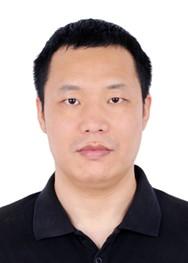
十一、专家报告10:陈辉:北京理工大学 自适应模型预测控制的可行性与收敛性 Feasibility and Convergence of Adaptive Model Predictive Control
Hui Chen is currently a postdoctoral researcher at Beijing Institute of Technology(BIT). He received a Ph.D. degree in Systems Theory from the Academy of Mathematics and Systems Science, Chinese Academy of Sciences in 2023. and obtained his B.S. in Mathematics from Shandong University in 2018. His research focuses on the interdisciplinary areas of adaptive model predictive control, wargaming, and intelligent decision-making.
abstract:Model predictive control (MPC) has recently attracted increasing attention in both industry and academia. The traditional MPC design relies on the specific system models, and its effectiveness is influenced by the accuracy of the models. To address system uncertainties, adaptive or learning-based approaches are employed in the design of MPC. In this report, adaptive MPC algorithms are designed for some typical systems. Under some assumptions, we establish both the feasibility of the adaptive MPC and the convergence of the closed-loop control performance by using the weighted least-square algorithm and the random regularization method. However, these assumptions have certain limitations. To address these issues, we also attempted to provide several feasible approaches.
报告人简介:陈辉,2018年获山东大学数学学士学位,2023年获中国科学院数学与系统科学研究院系统理论博士学位。目前为北京理工大学博士后,主要致力于自适应模型预测控制、兵棋推演与智能决策等方向的交叉研究。摘要:模型预测控制(MPC)近年来在工业界和学术界获得了日益广泛的关注。传统的MPC设计依赖于特定的系统模型,其控制效果直接受模型精确度的影响。为应对系统存在的不确定性,自适应及基于学习的方法被引入到MPC设计中。本报告针对若干典型系统,设计了自适应MPC算法。在一定的假设条件下,通过结合加权最小二乘算法与随机正则化方法,我们不仅证明了自适应MPC的可行性,还验证了闭环控制性能的收敛性。然而,这些假设条件具有一定的局限性,针对这一问题,我们也尝试提出了若干切实可行的解决思路。
十二、专家报告11:陈鸽,中国科学院数学与系统科学研究院研究员 网络演化博弈研究进展 Research Progress on Evolutionary Games in Networks
报告题目:网络演化博弈研究进展
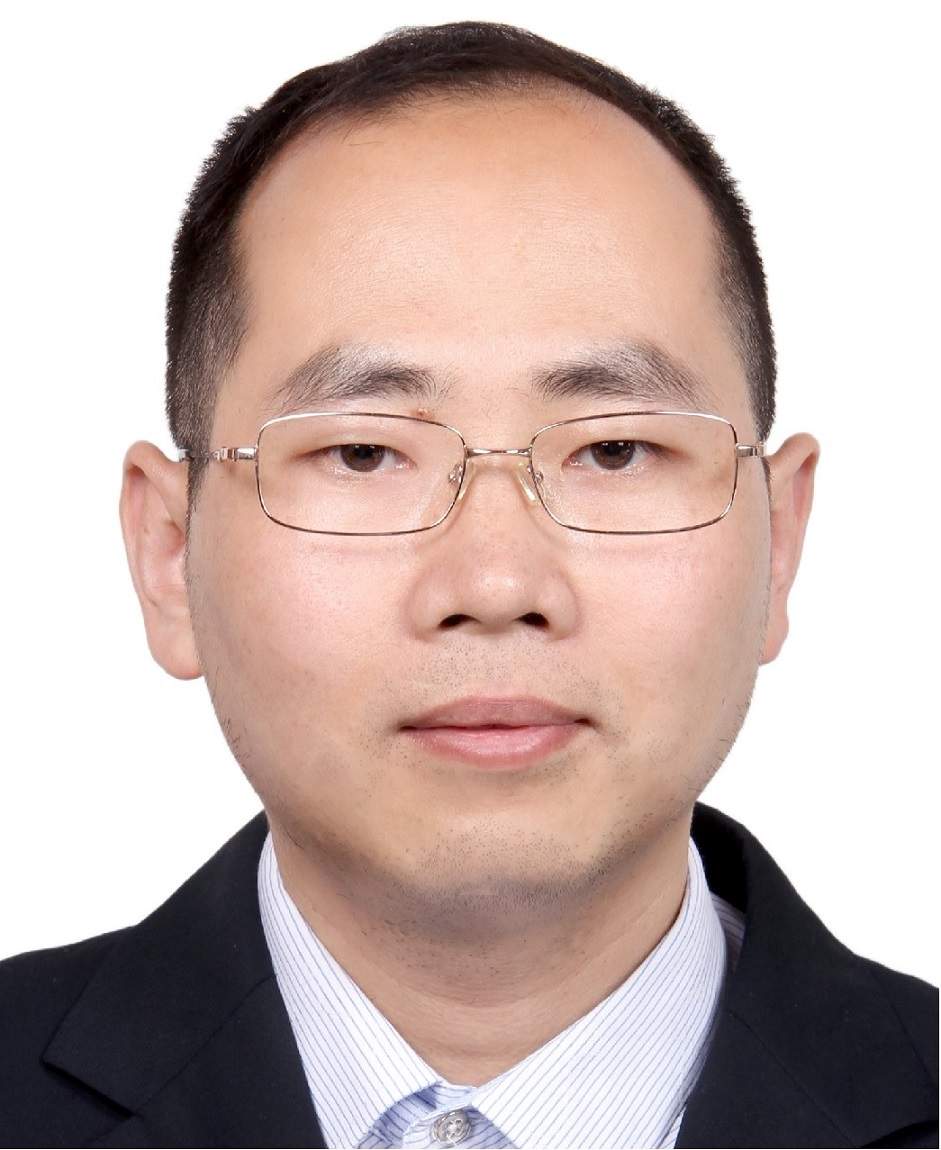
陈鸽,中国科学院数学与系统科学研究院研究员。主要研究兴趣为多智能体自组织涌现理论。发表SIAM Review, IEEE TAC, Automatica,IEEE TMC等期刊论文多篇,承担基金委、科技部、中科院项目多项。曾获中国控制论会议“关肇直奖”,中国自动化学会自然科学奖一等奖,中国运筹学会“中国运筹学应用奖”一等奖,美国工业与应用数学学会SIGEST论文奖励,中科院数学与系统科学研究院“年度科研进展奖”等。
摘要:网络演化博弈主要研究个体的博弈决策在网络上的动力学行为,包括群体行为的形成与演化机制。我们研究了二维网络上的囚徒困境、雪堆博弈(鹰鸽博弈,胆小鬼博弈)、和猎鹿博弈等模仿动力学模型,给出系统收敛的参数条件。此外,发现了收敛时间可能存在相变现象,并且在收敛到稳态之前会长时间停留在某个亚稳态。进一步,研究了新能源电力系统Stackelberg博弈问题,并给出了纳什均衡的一个解析解。


